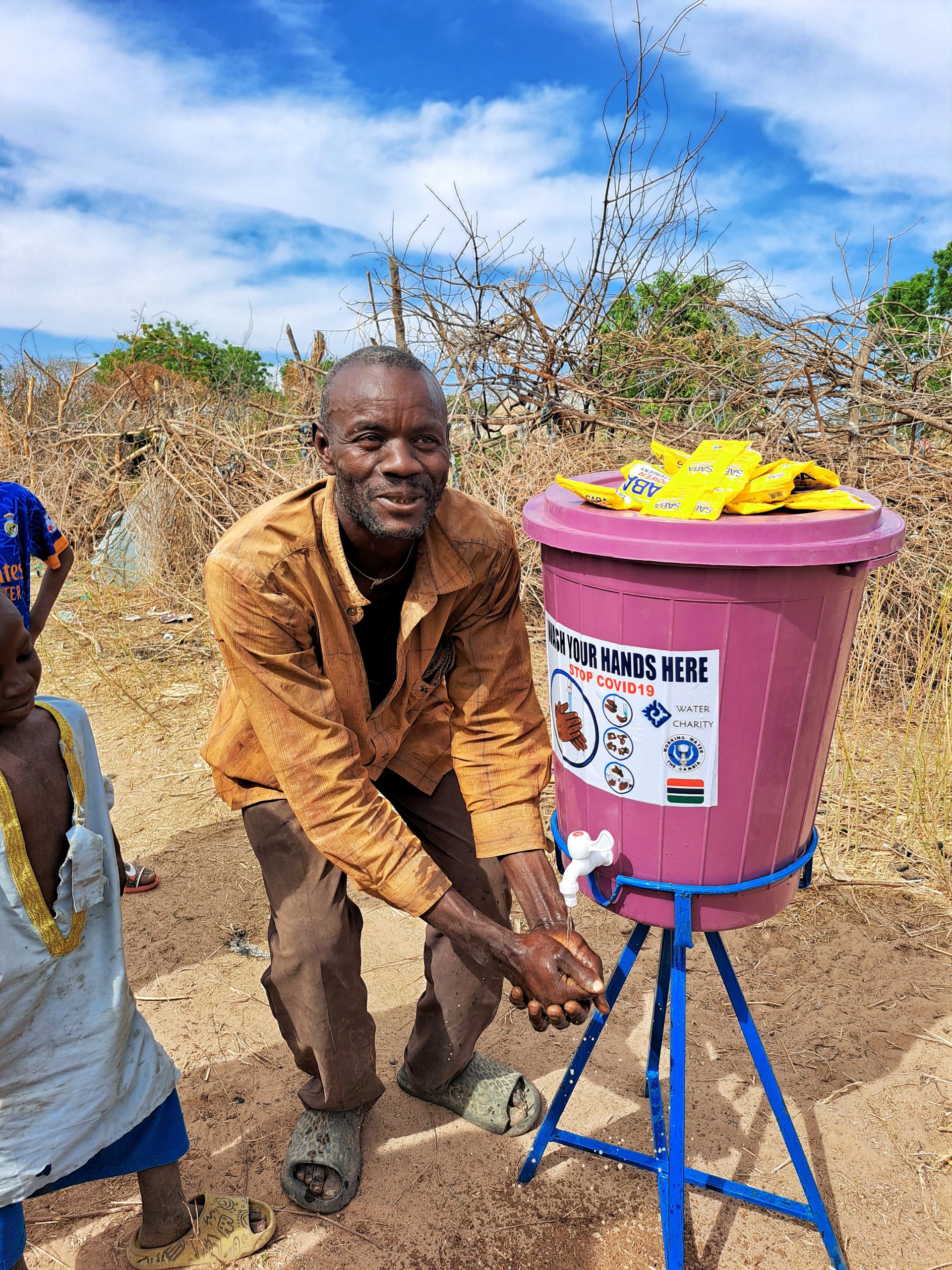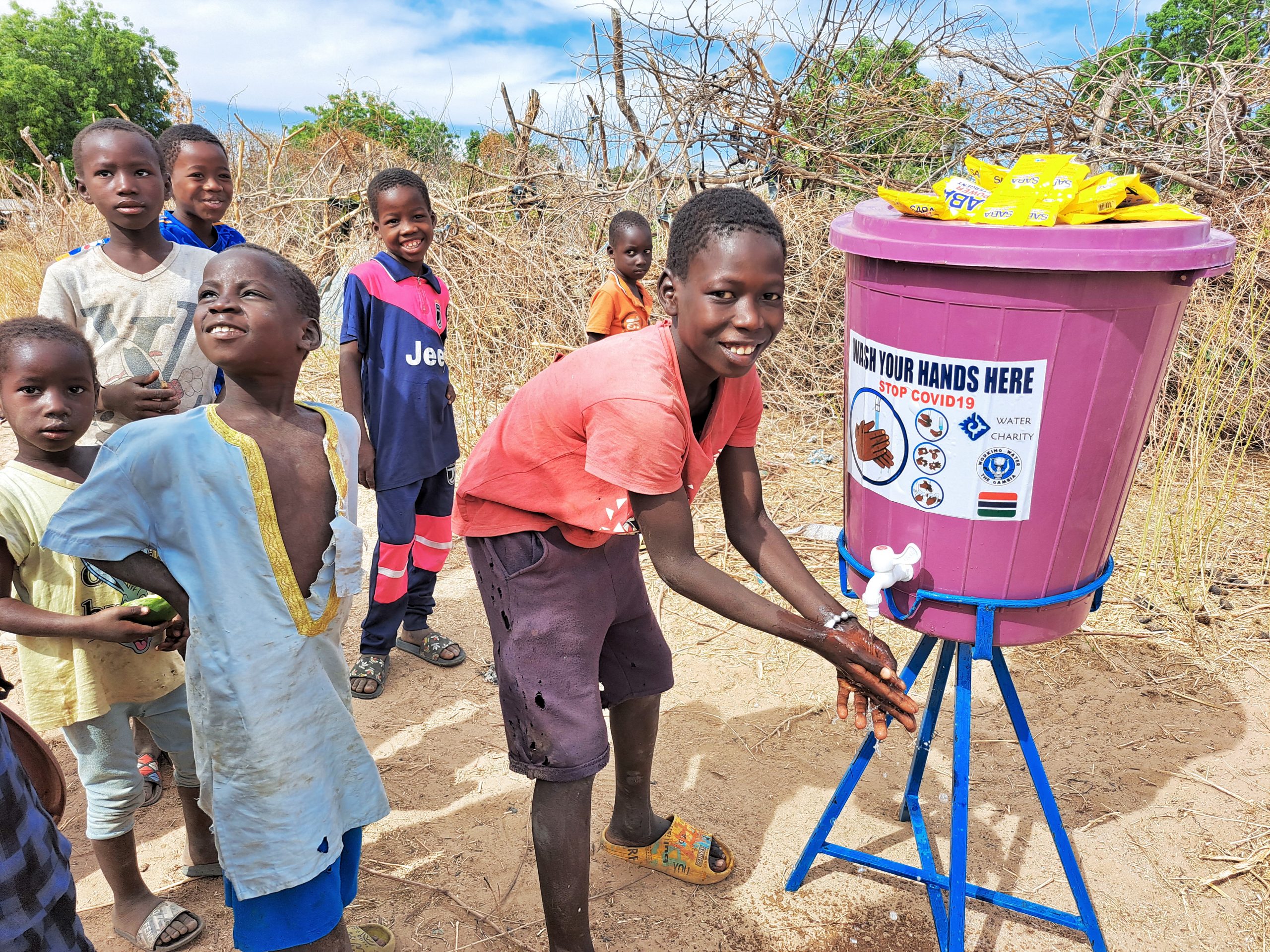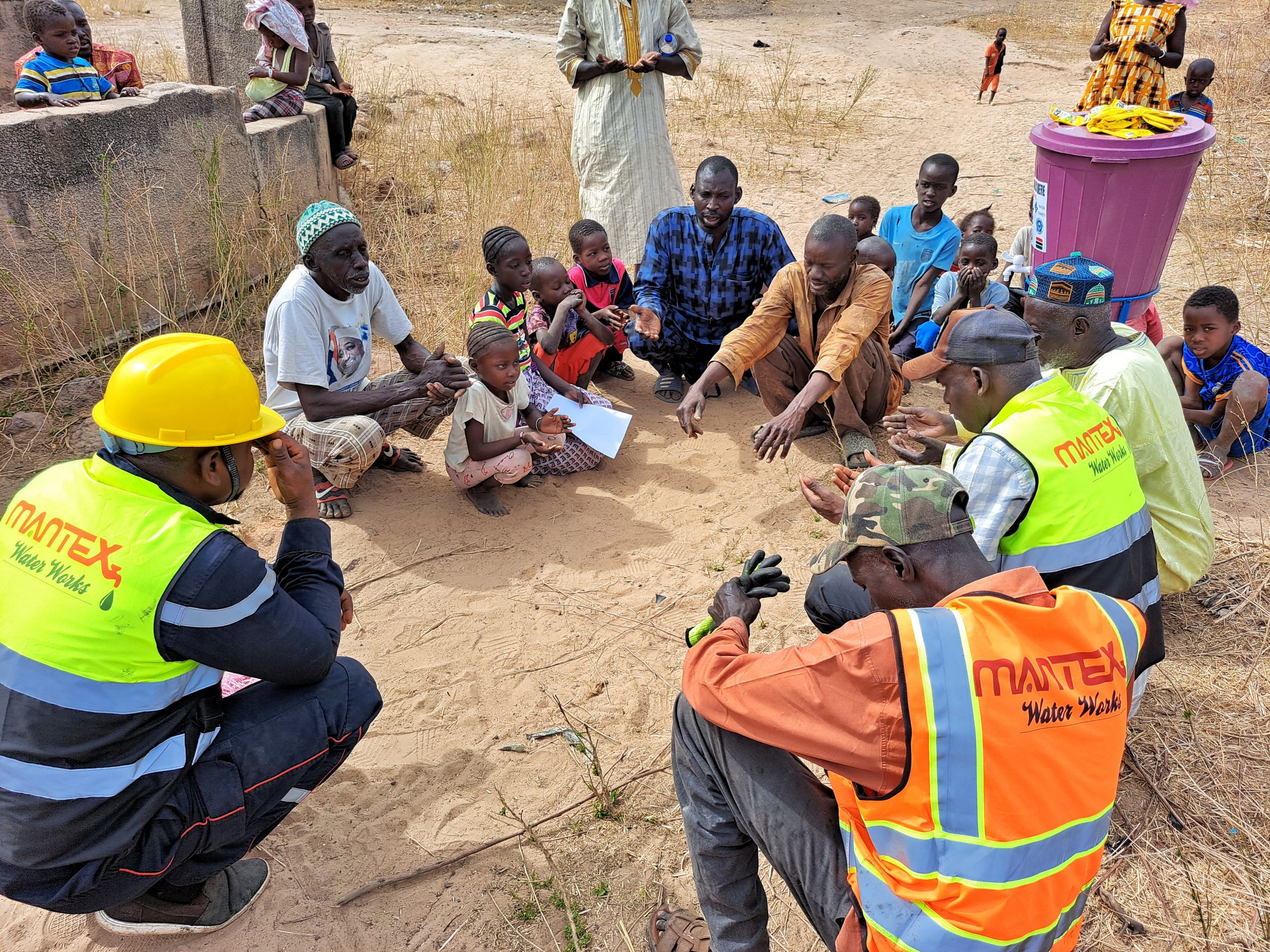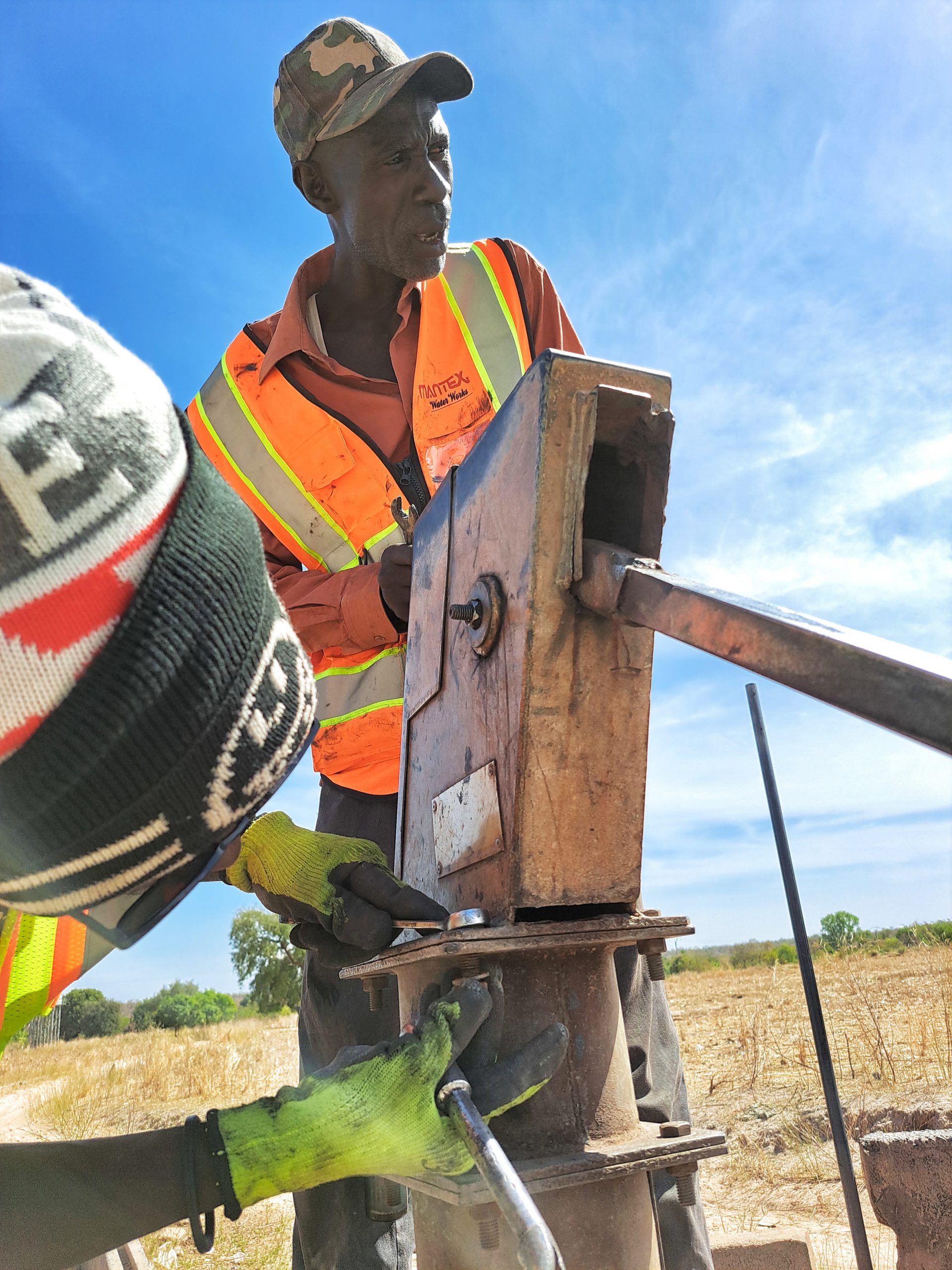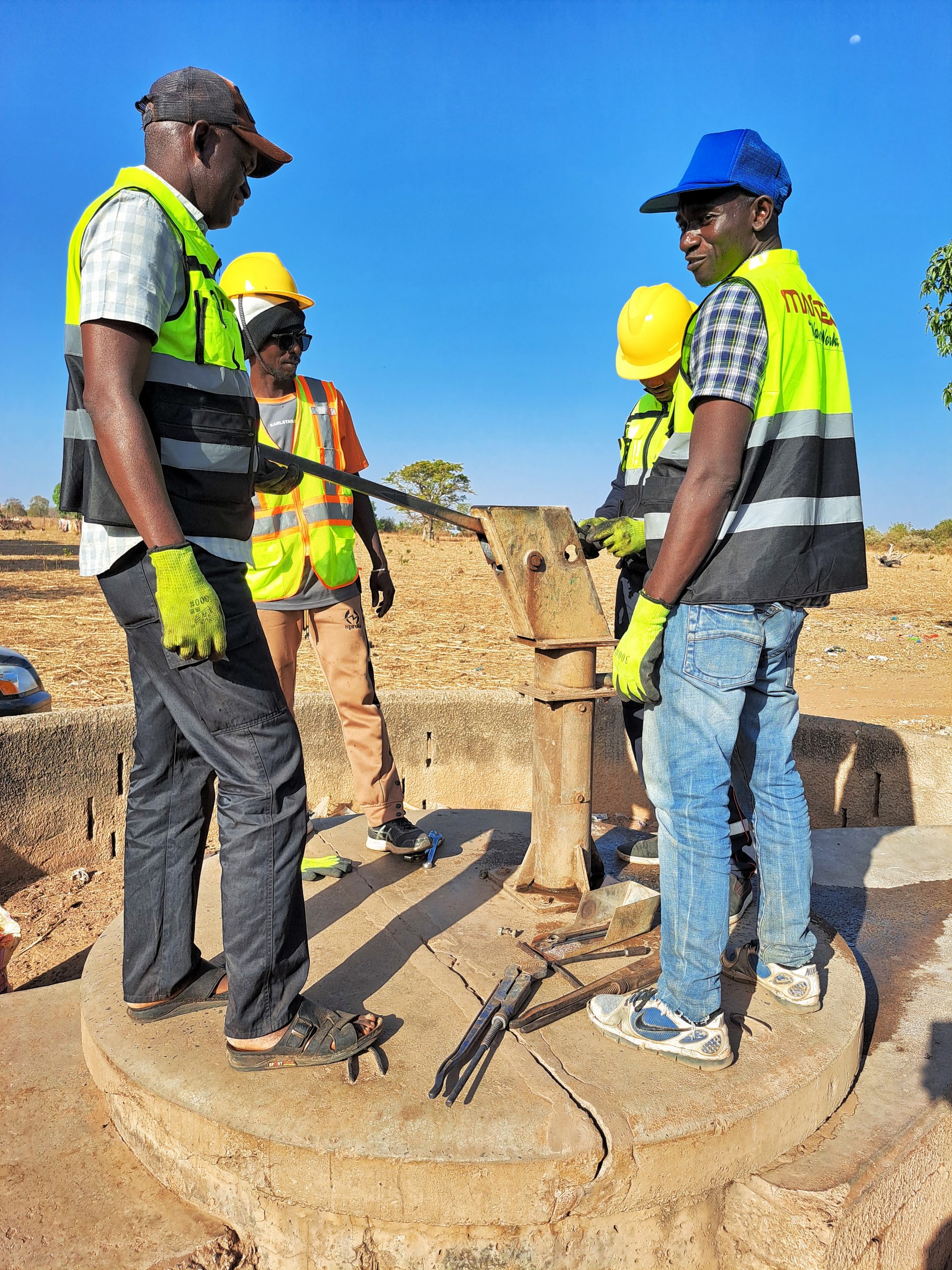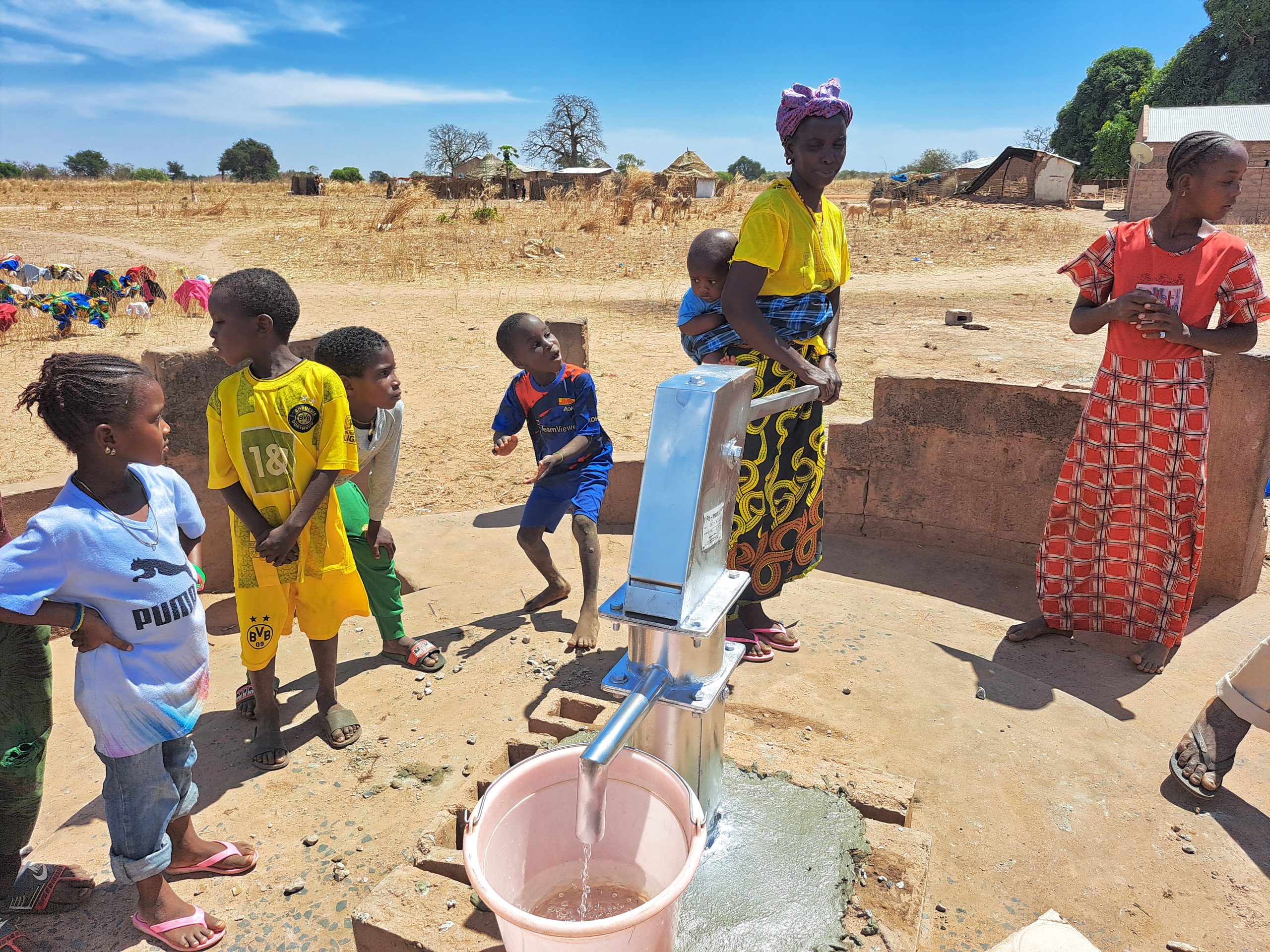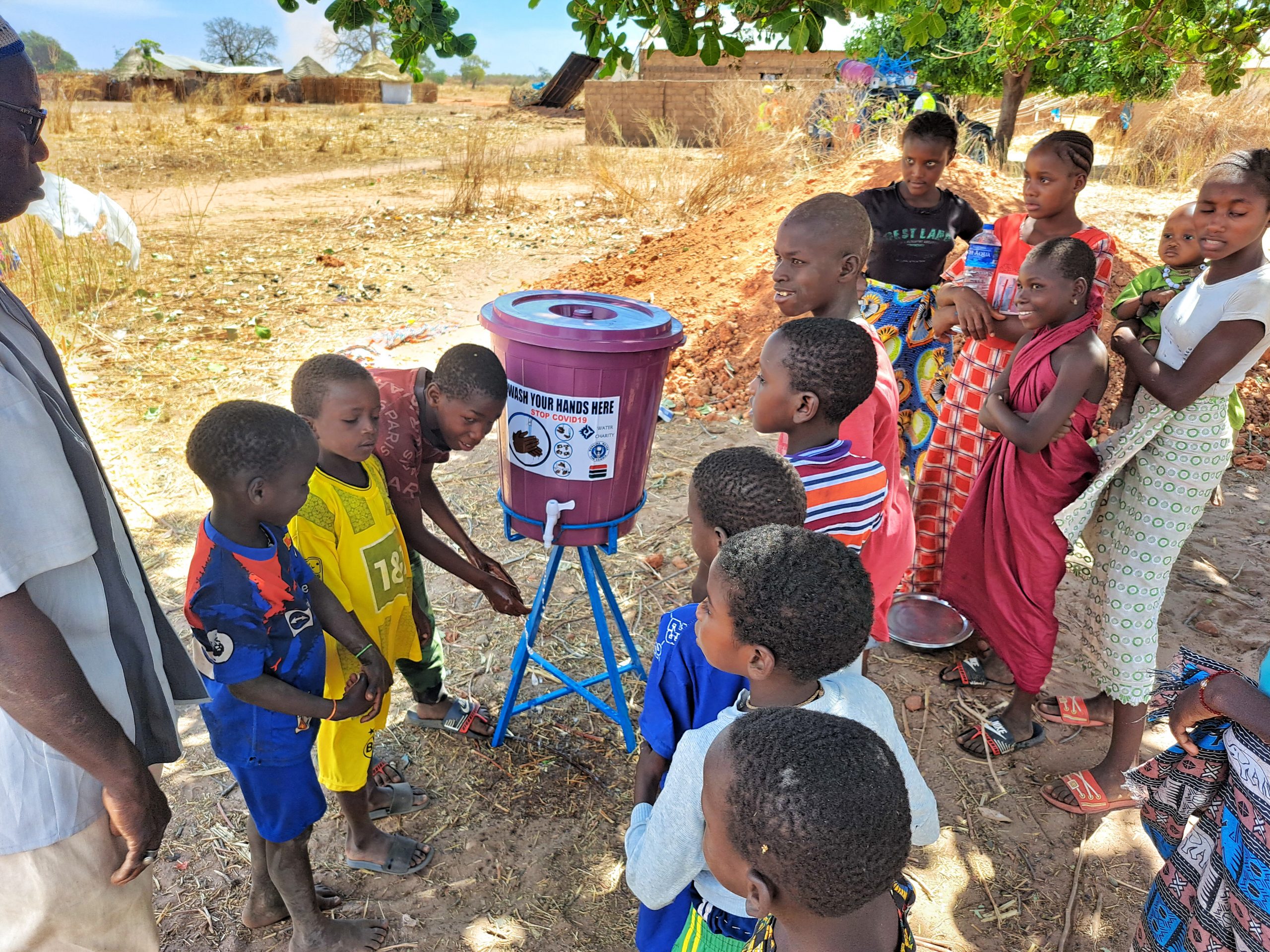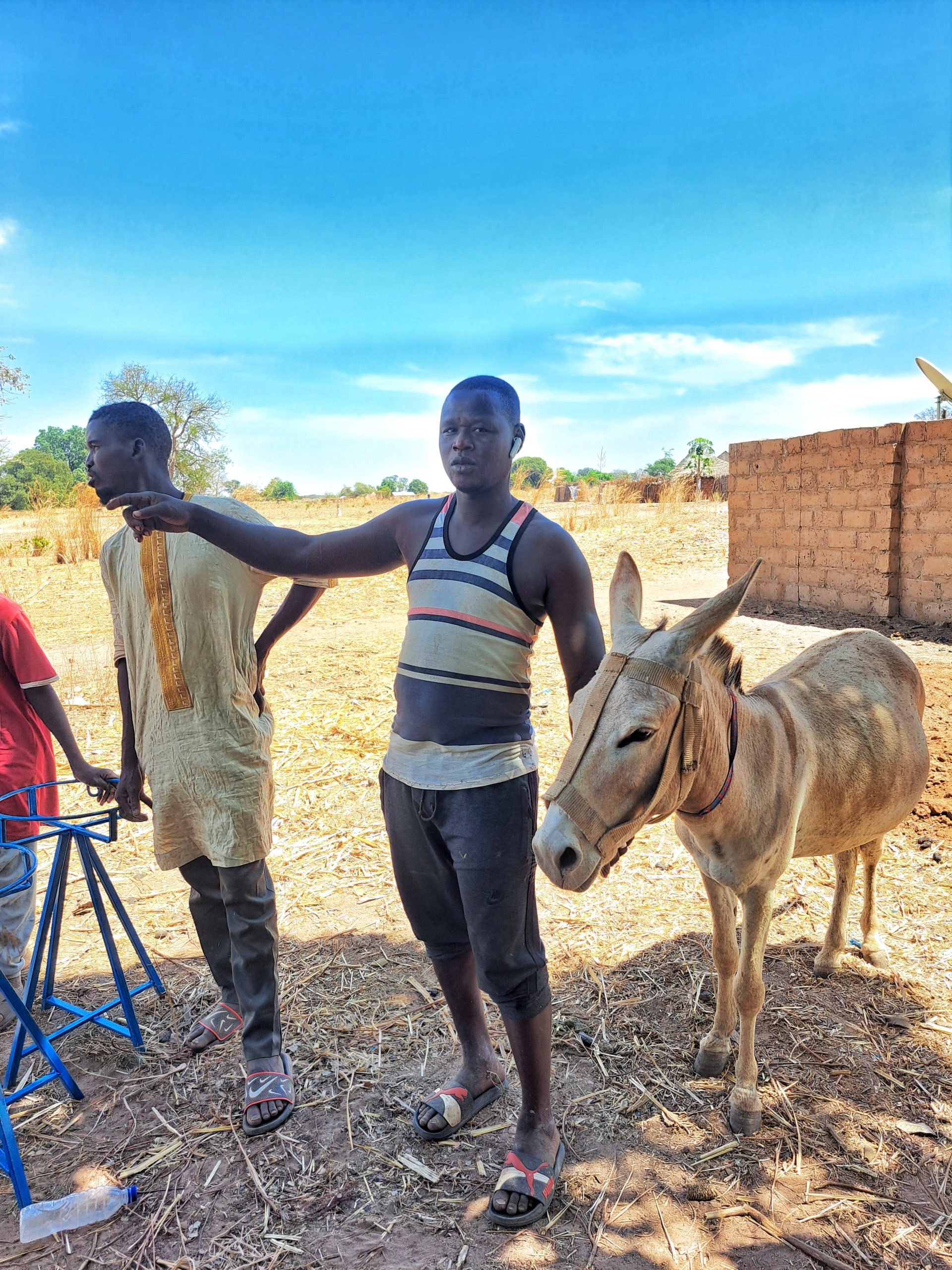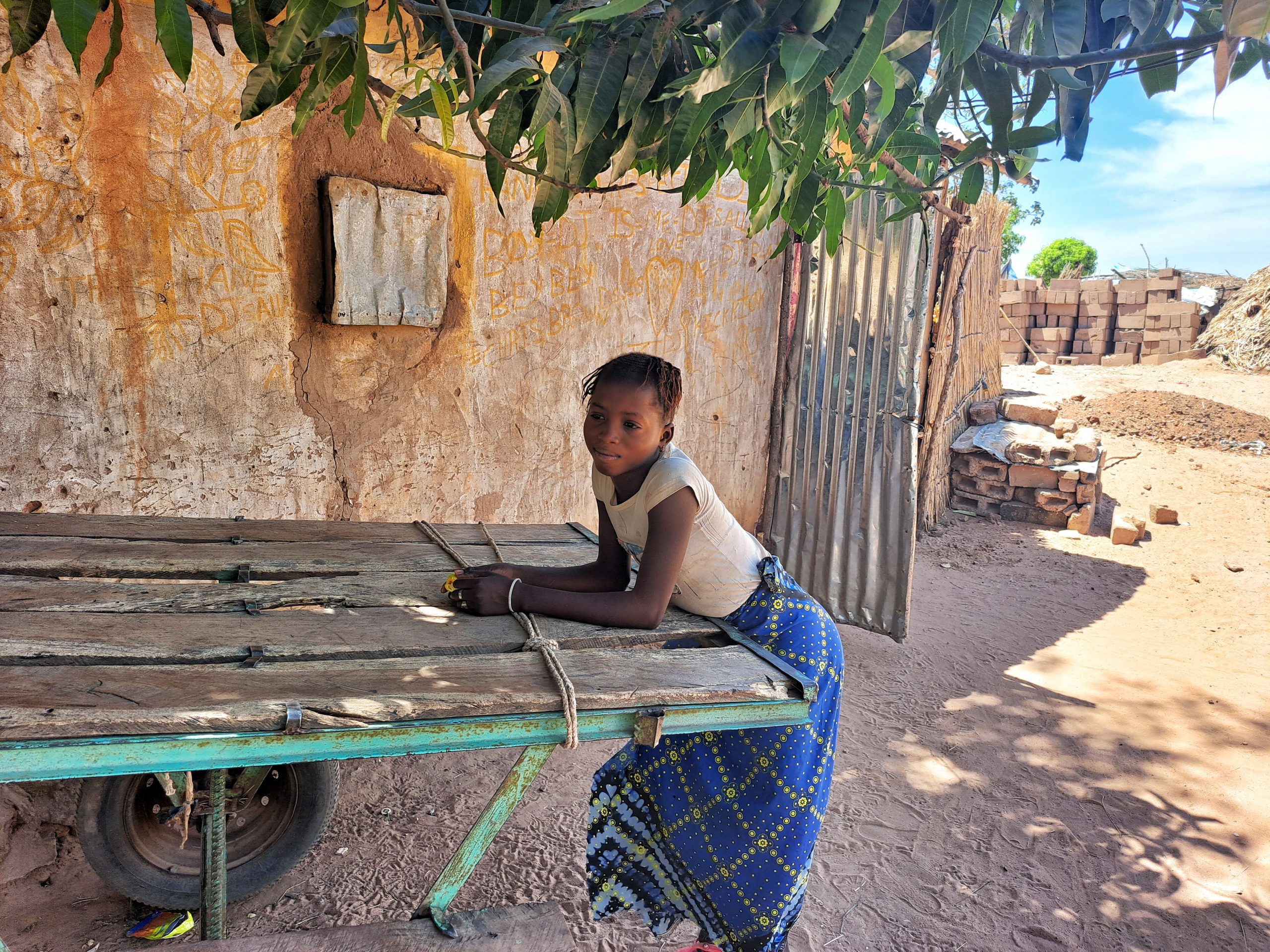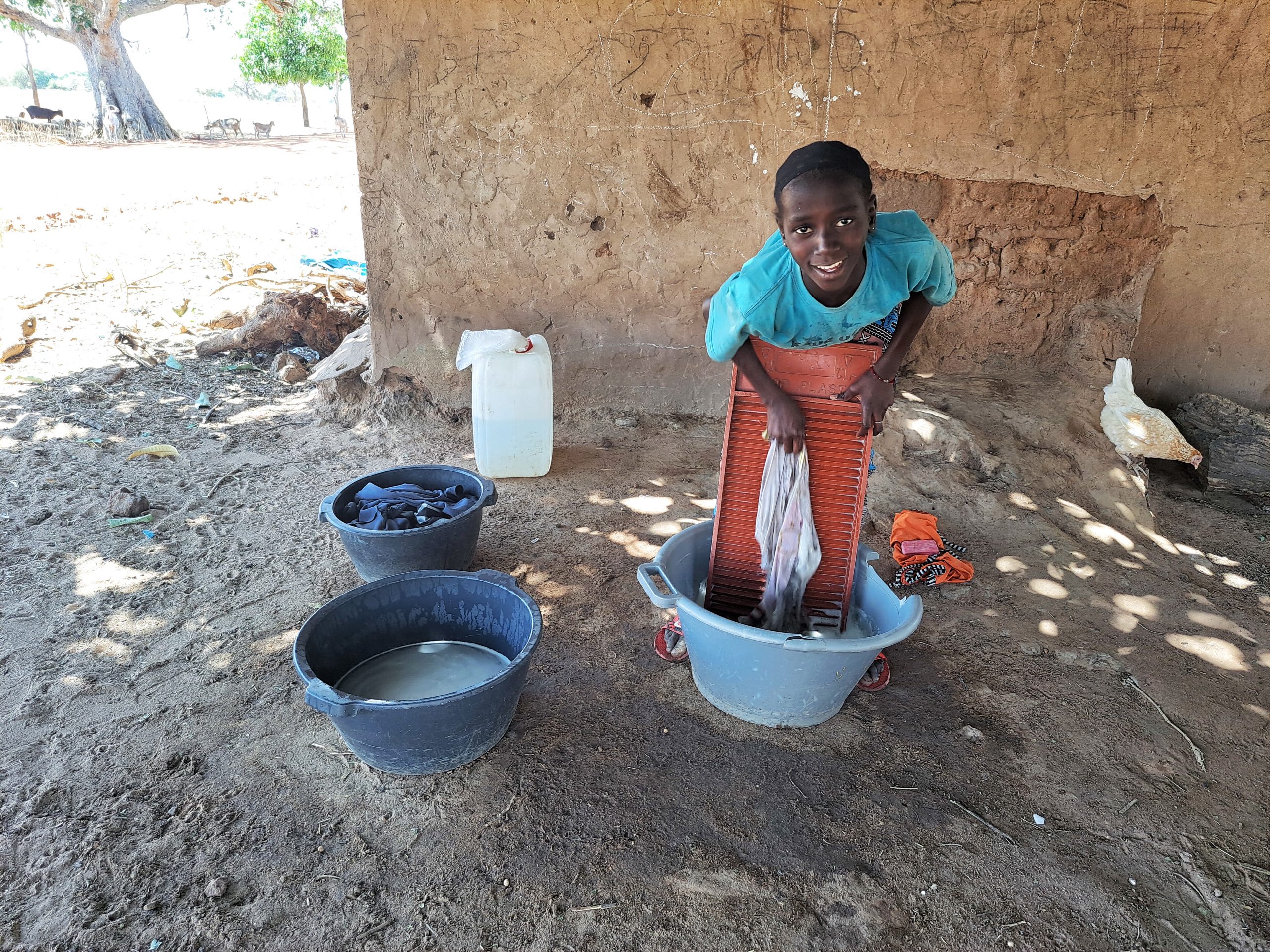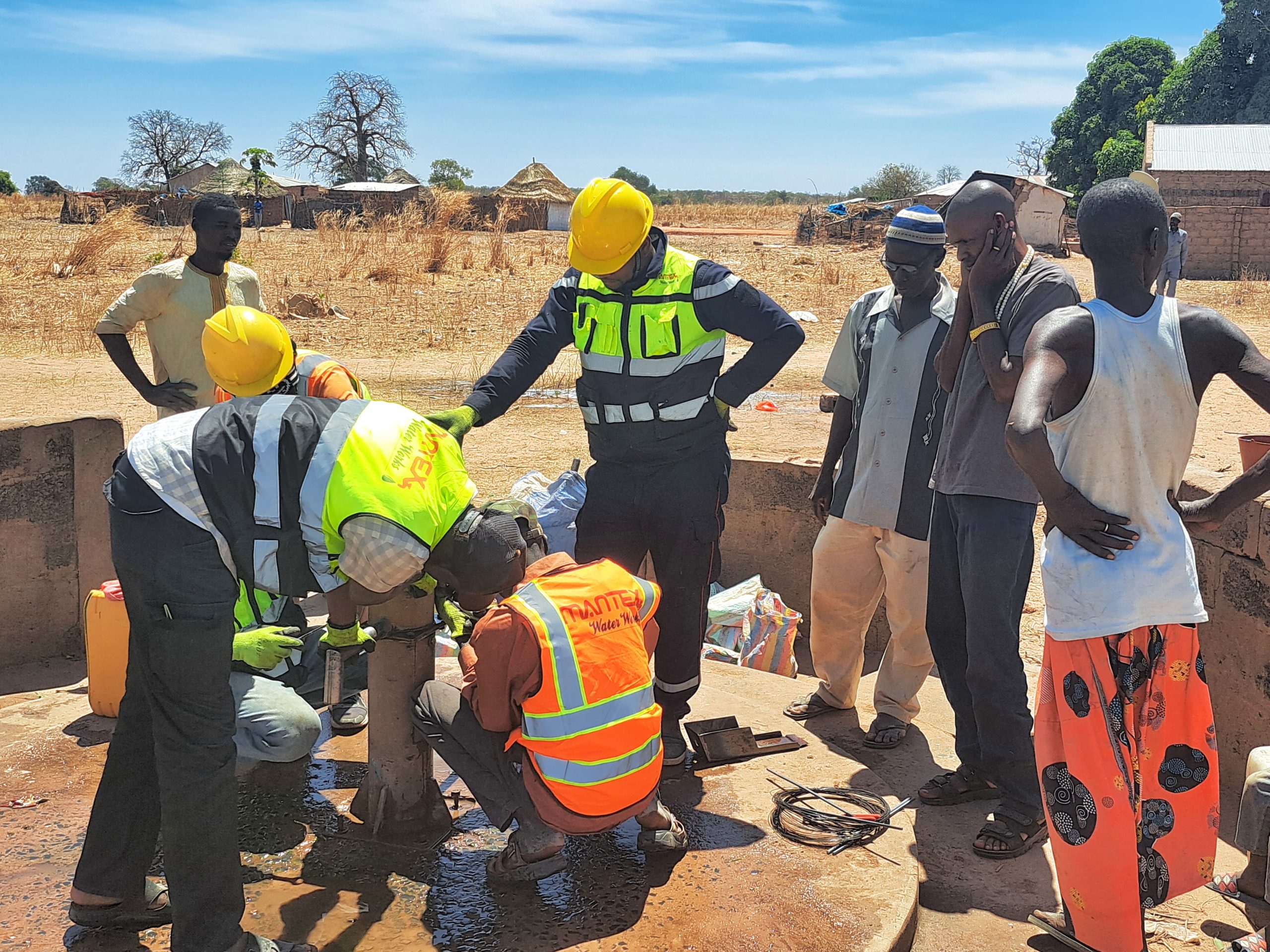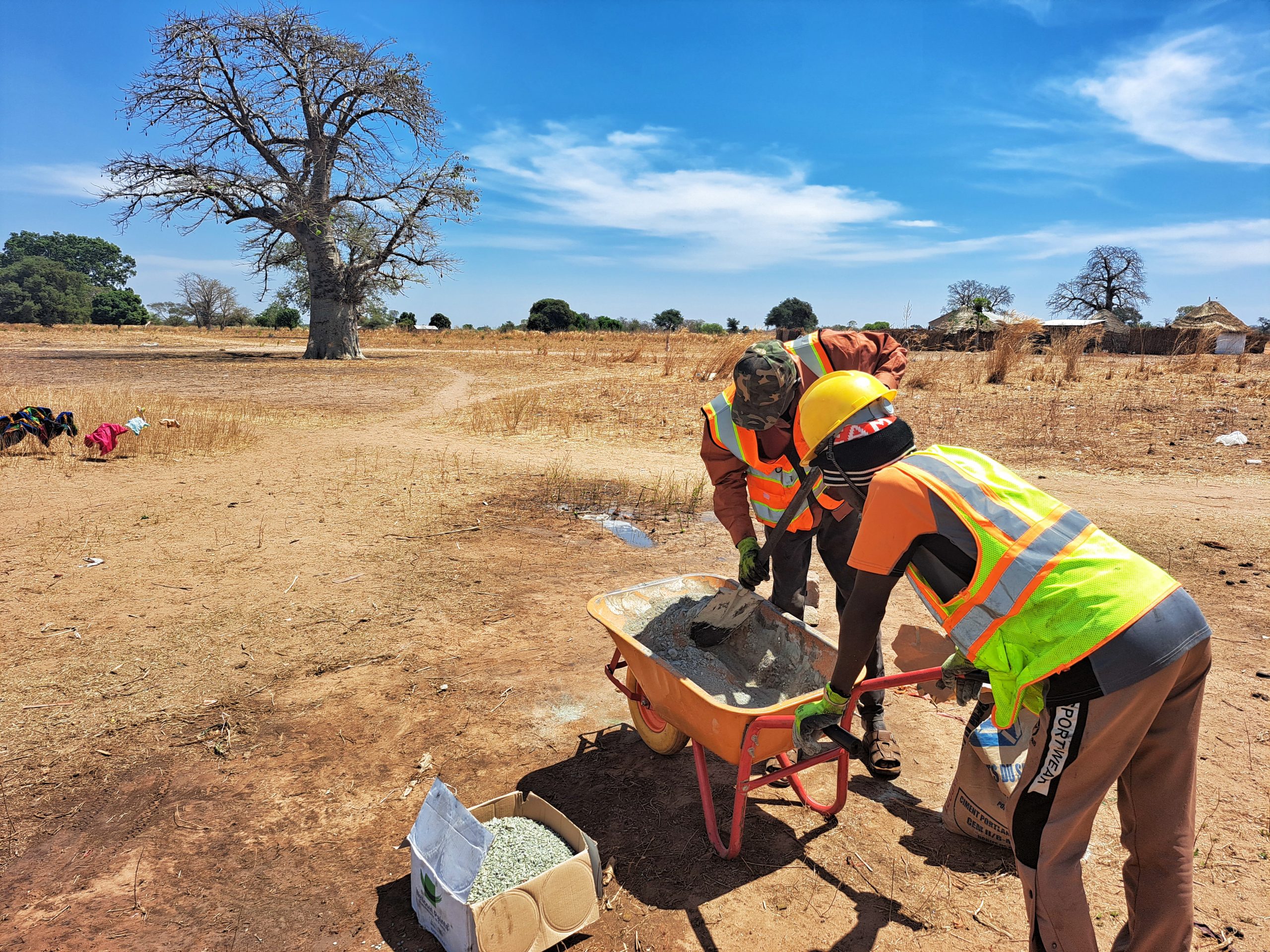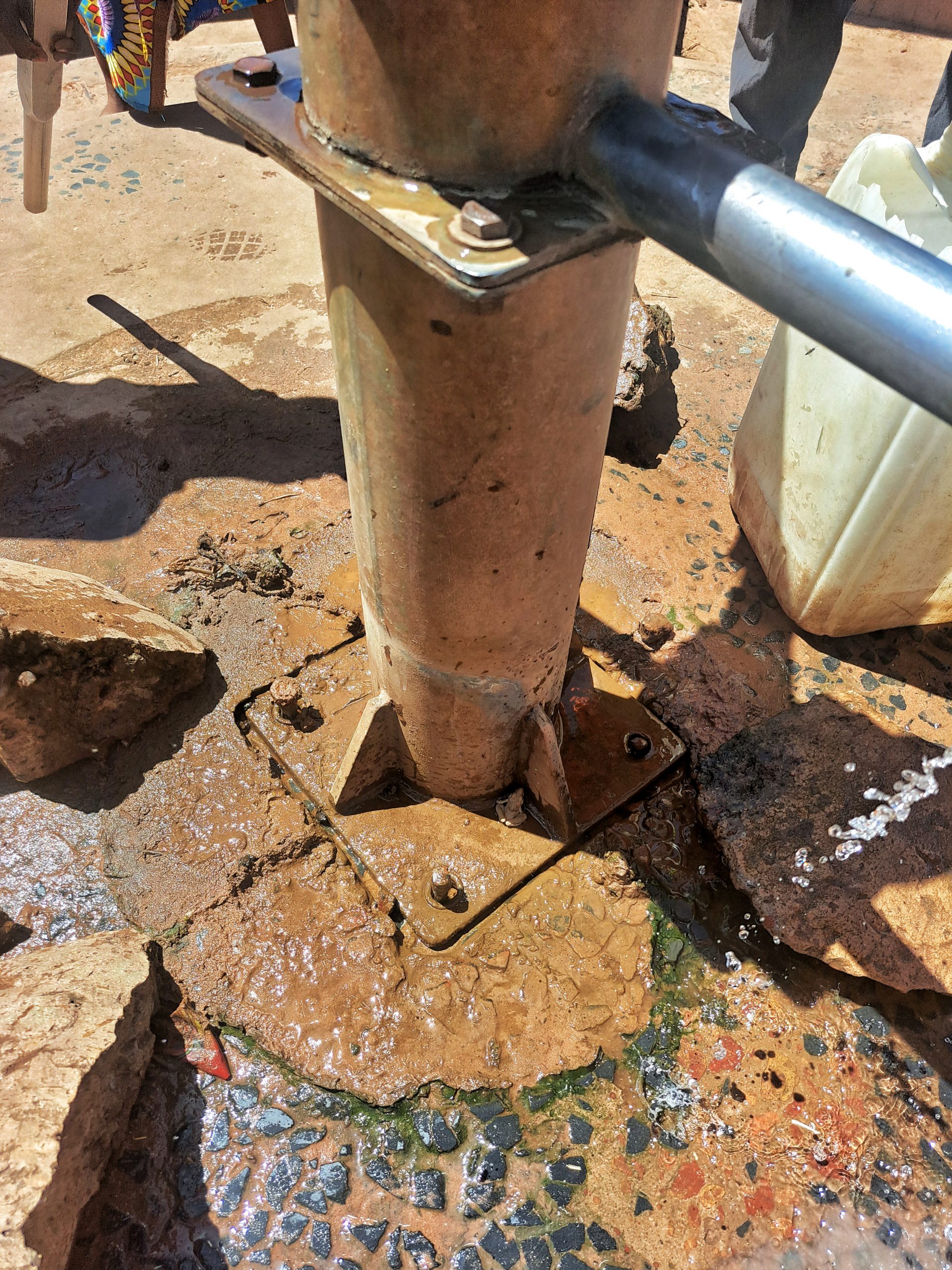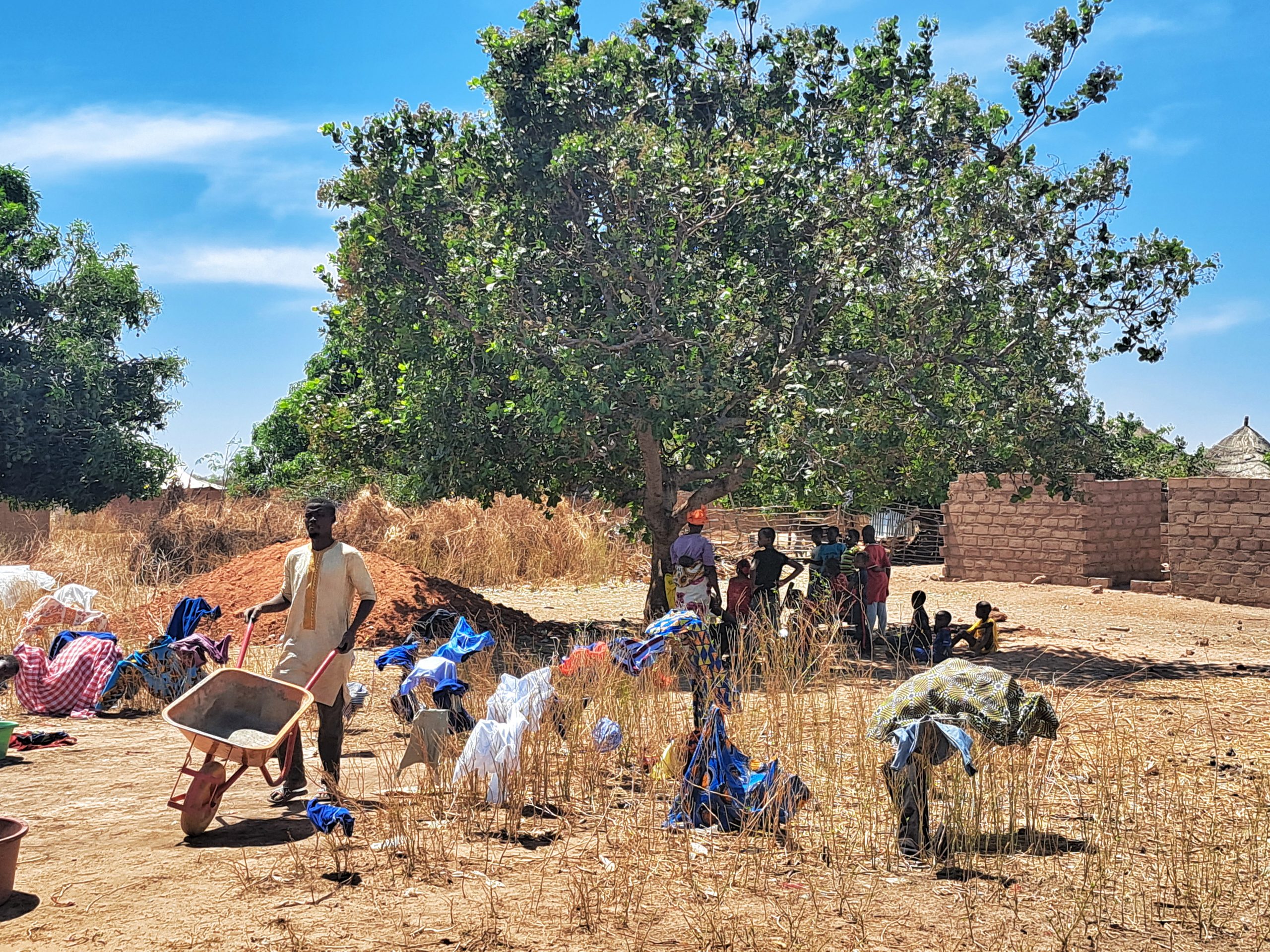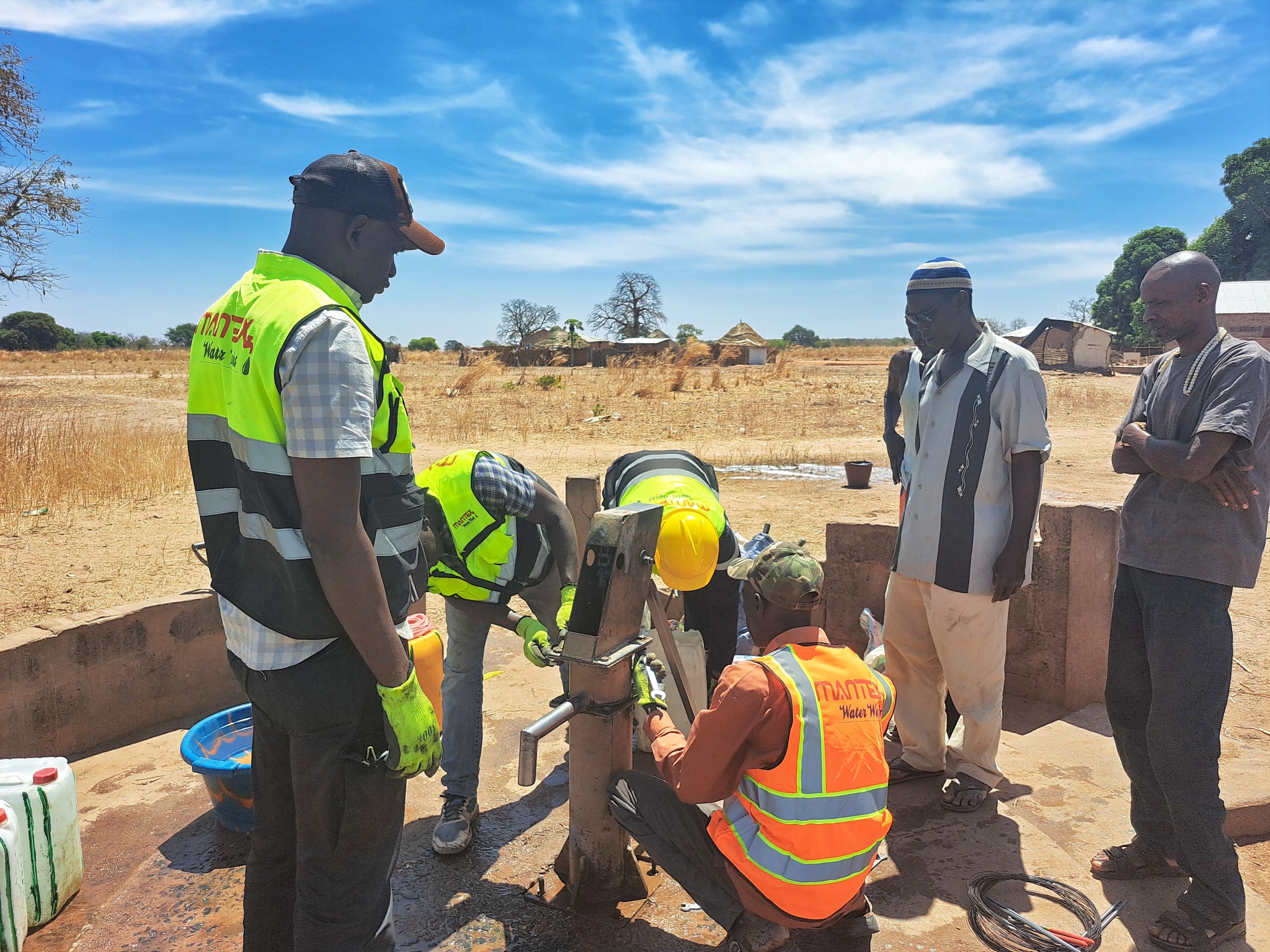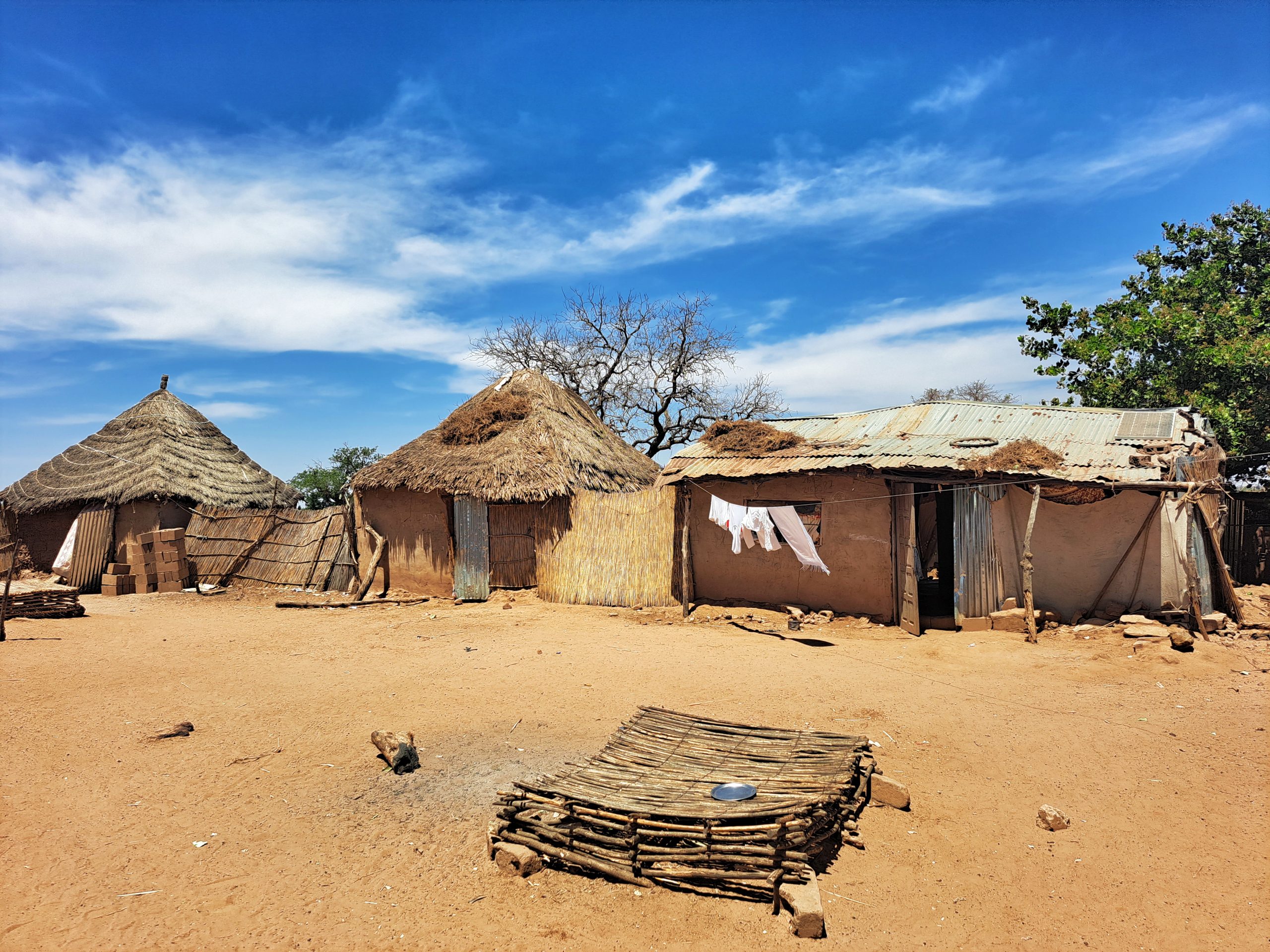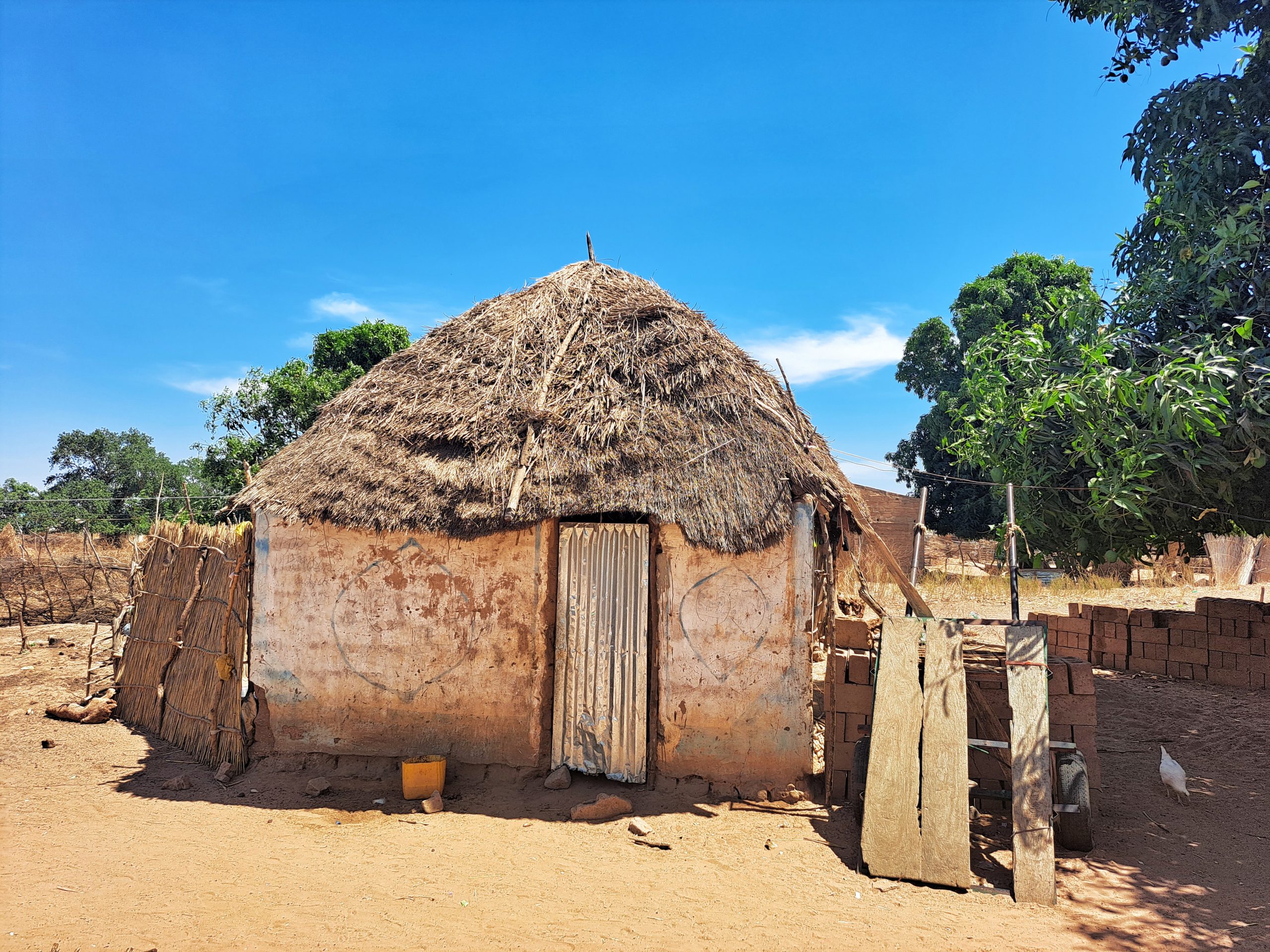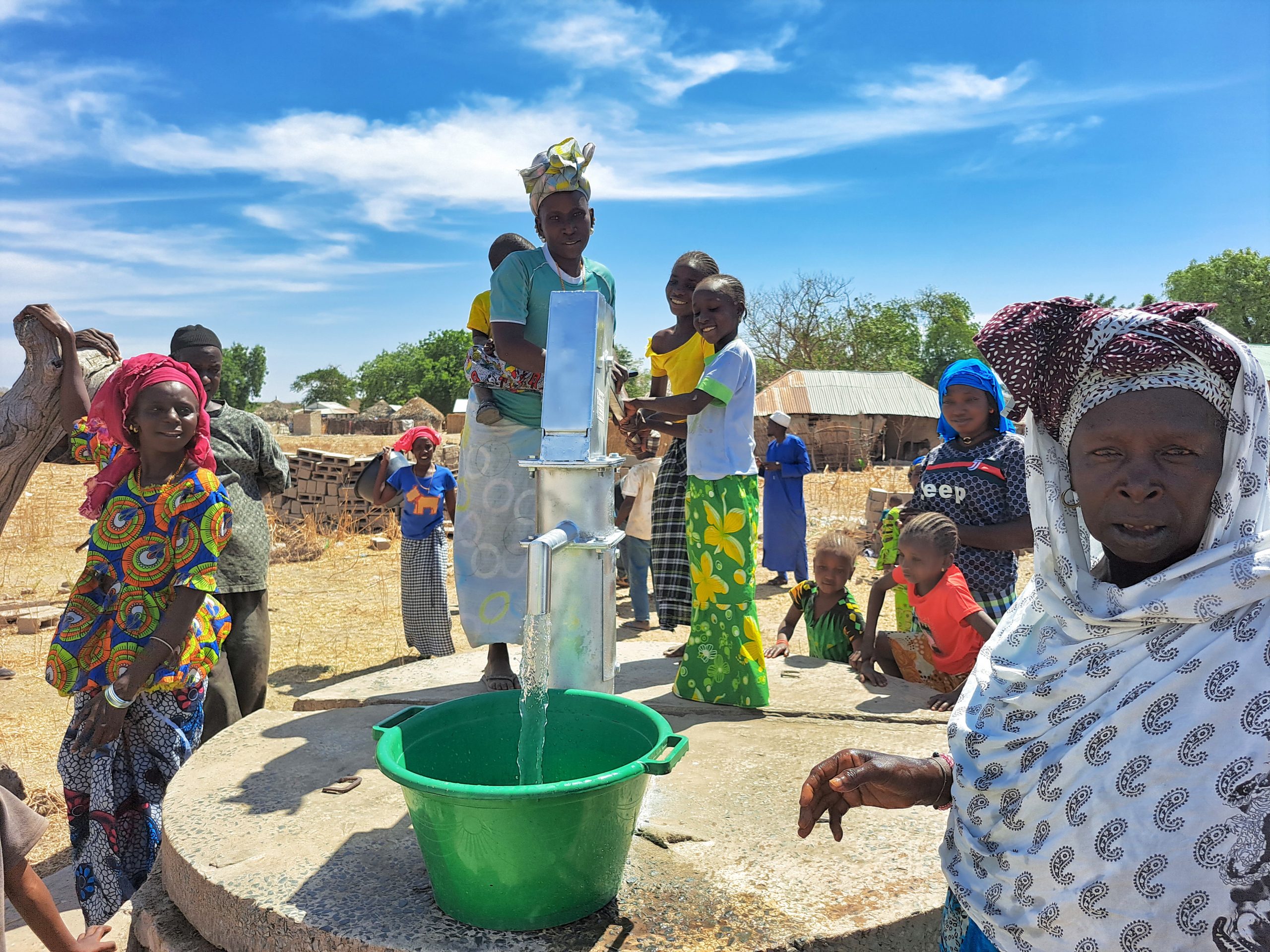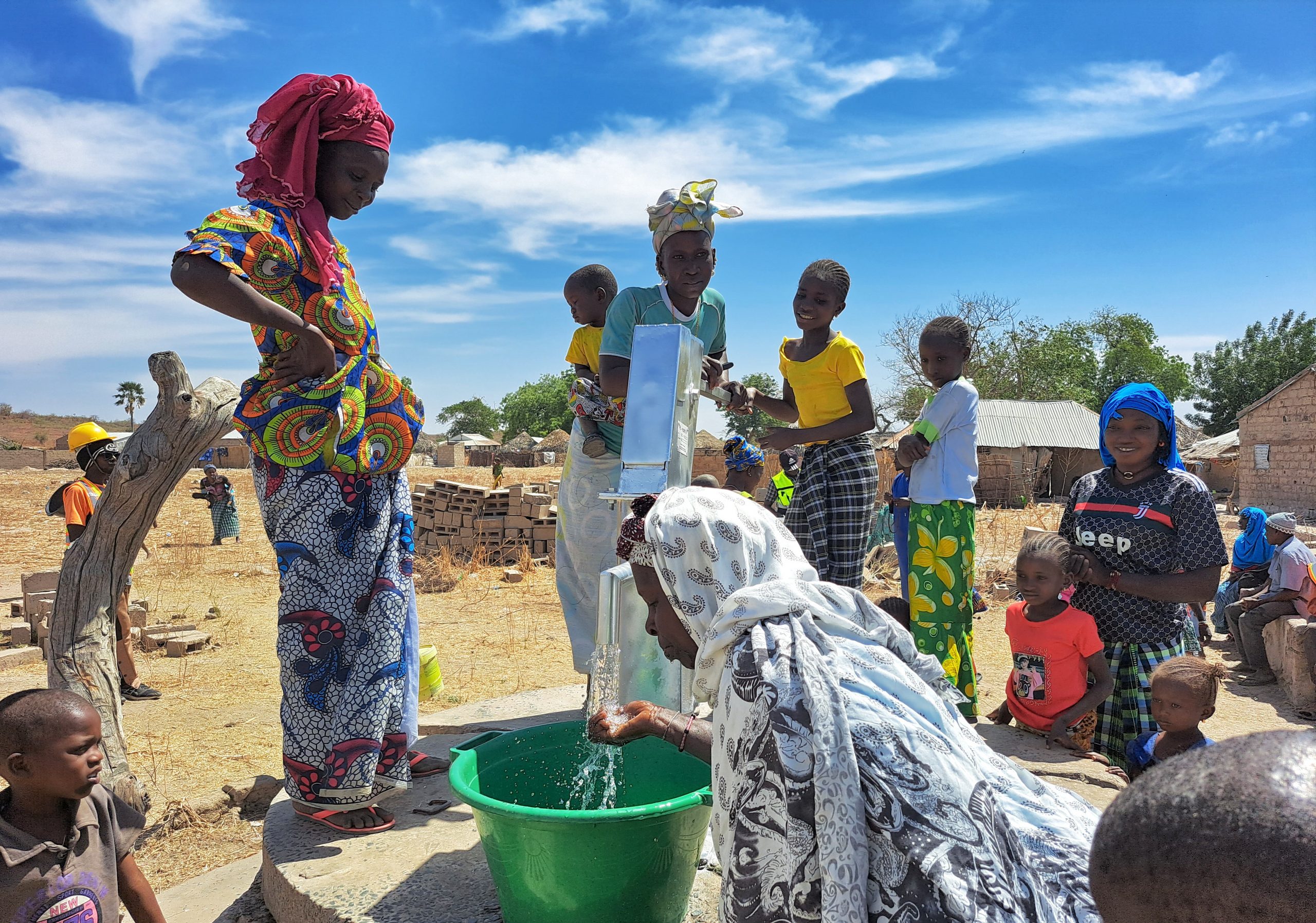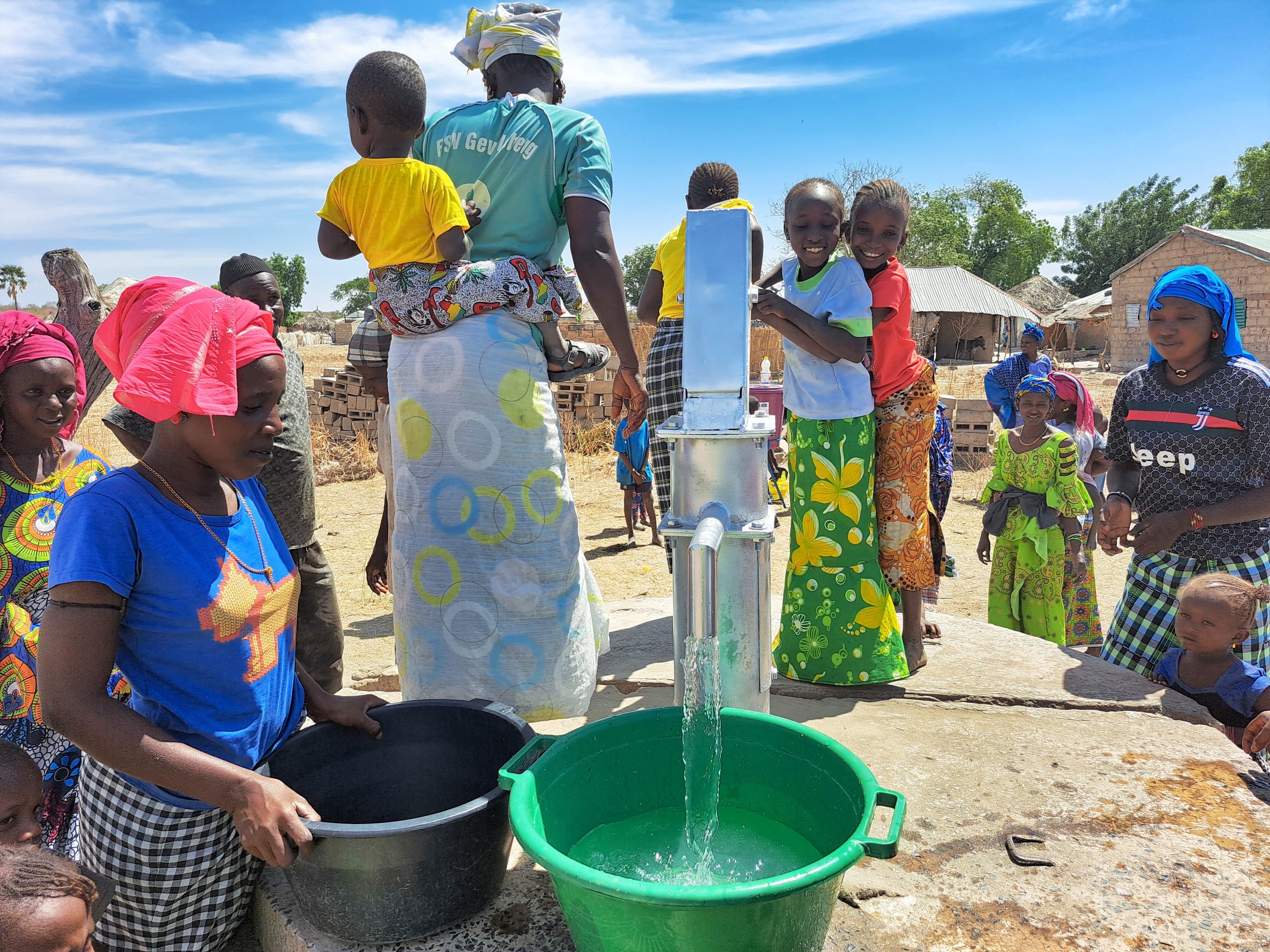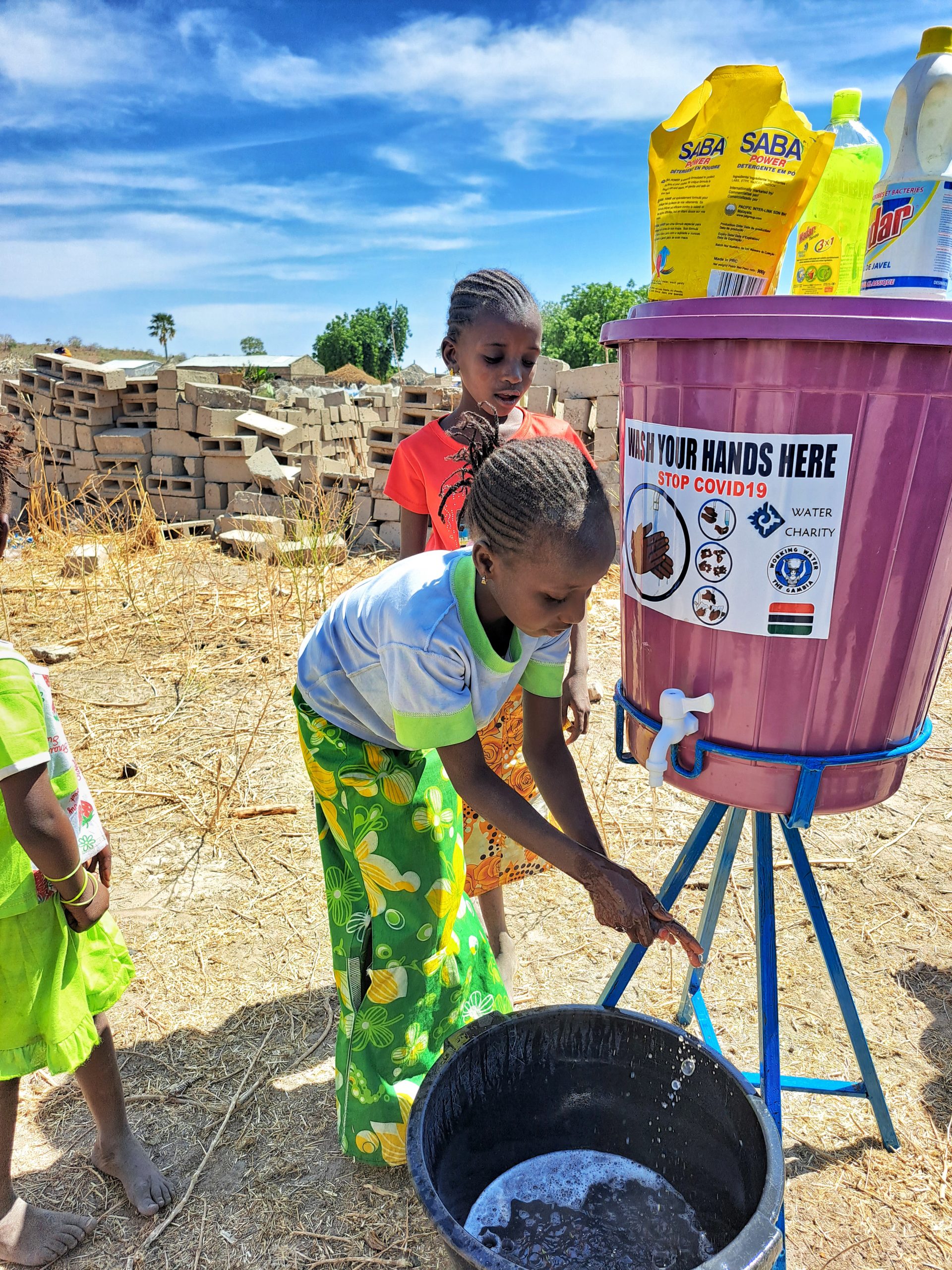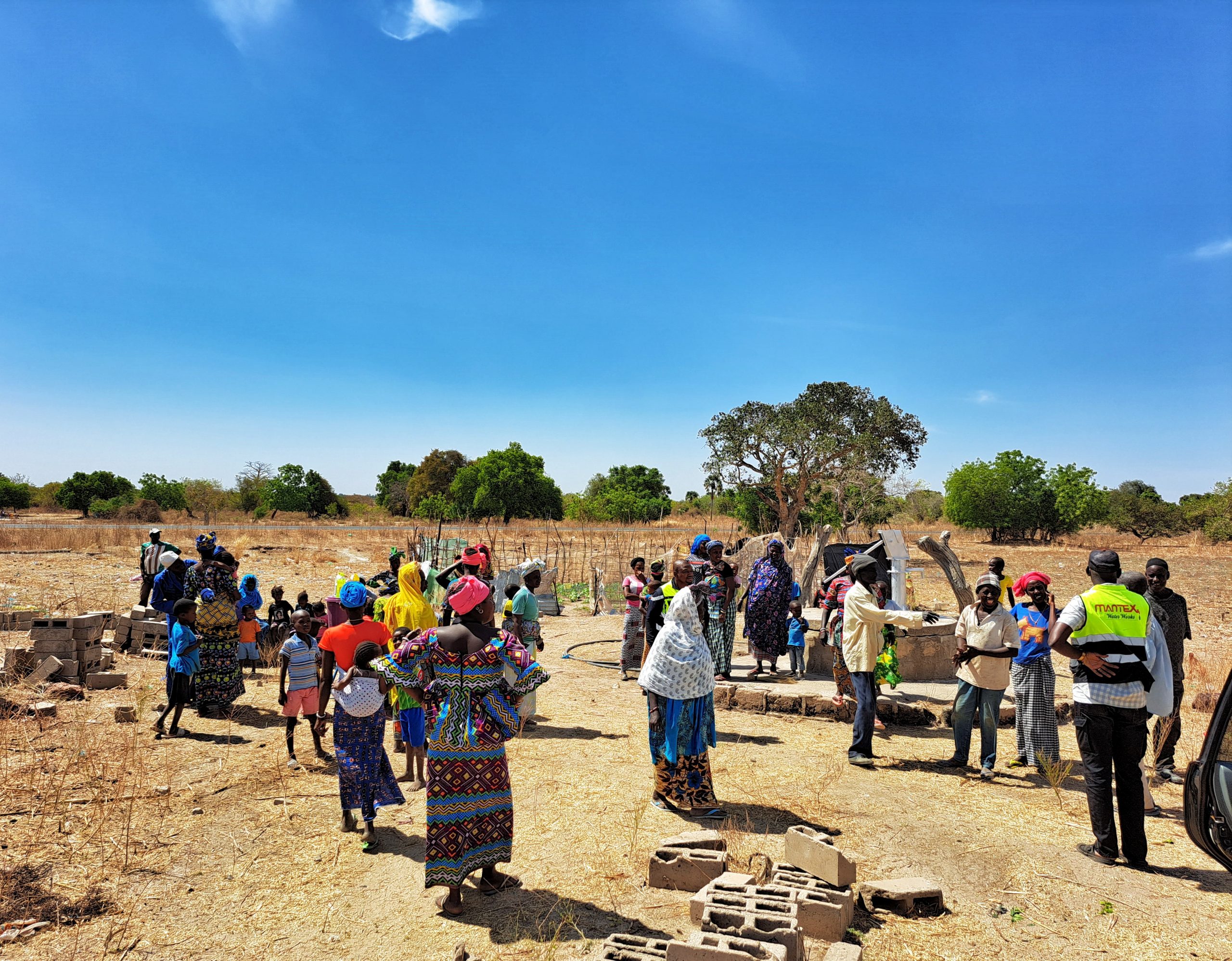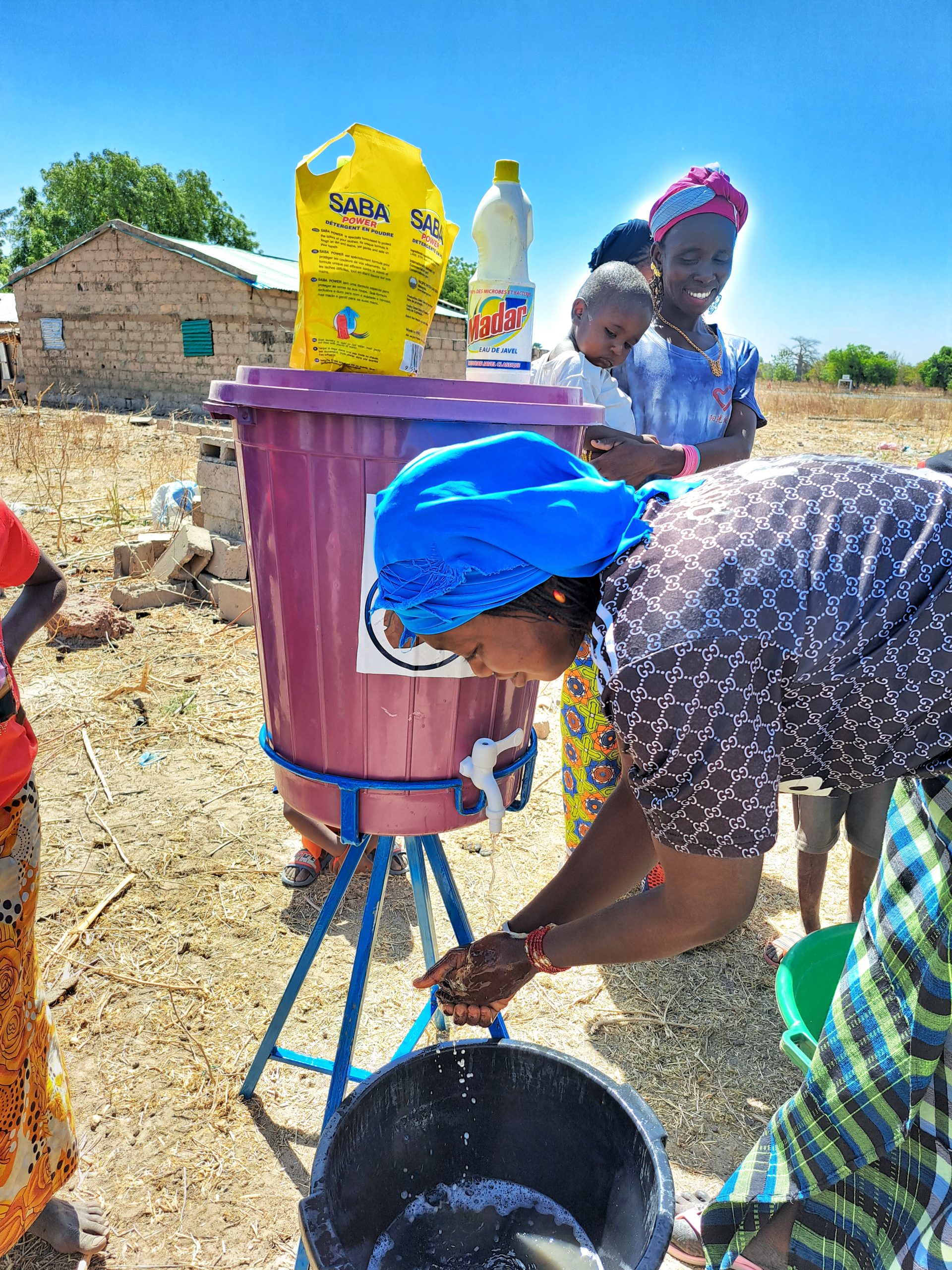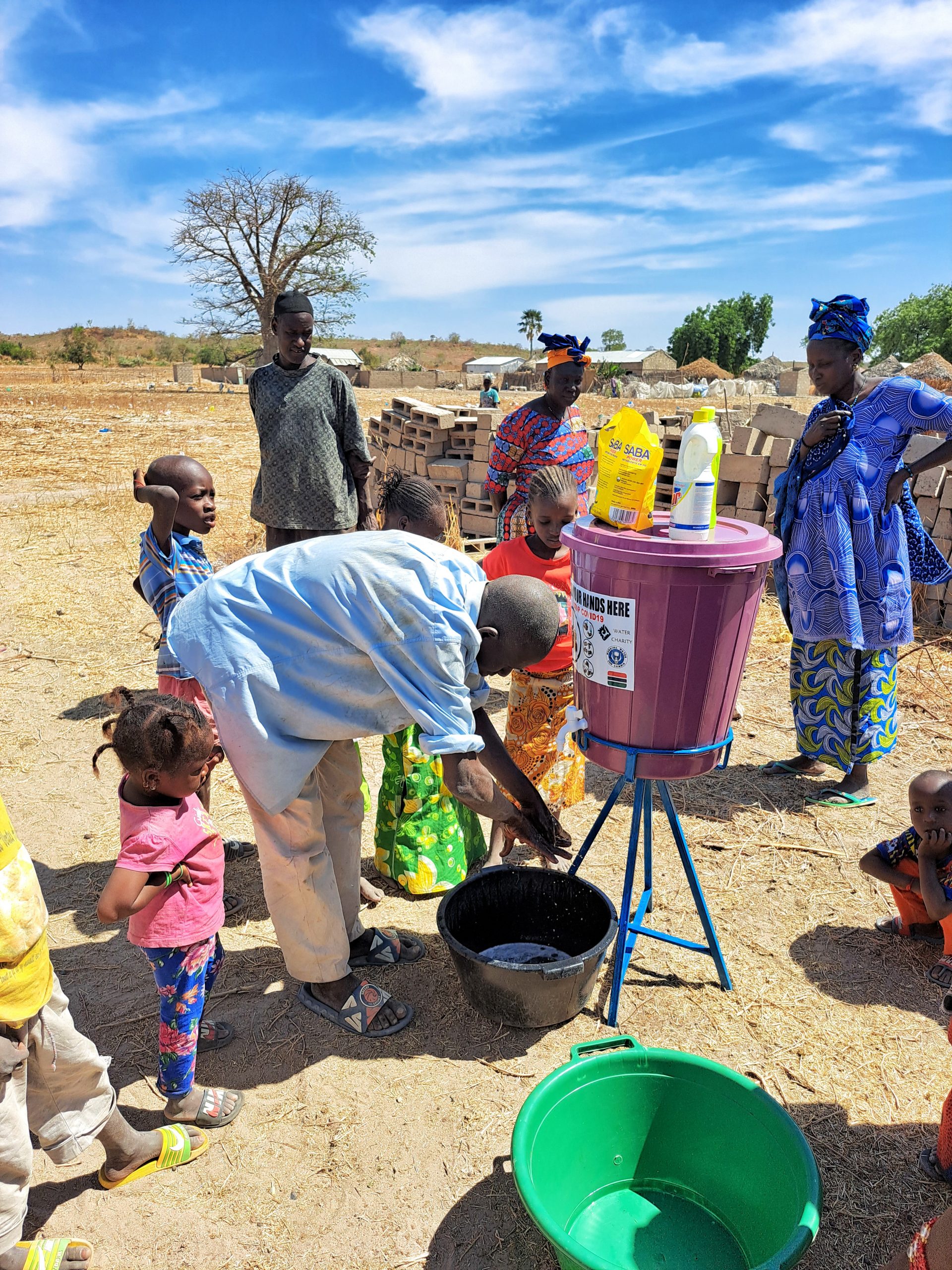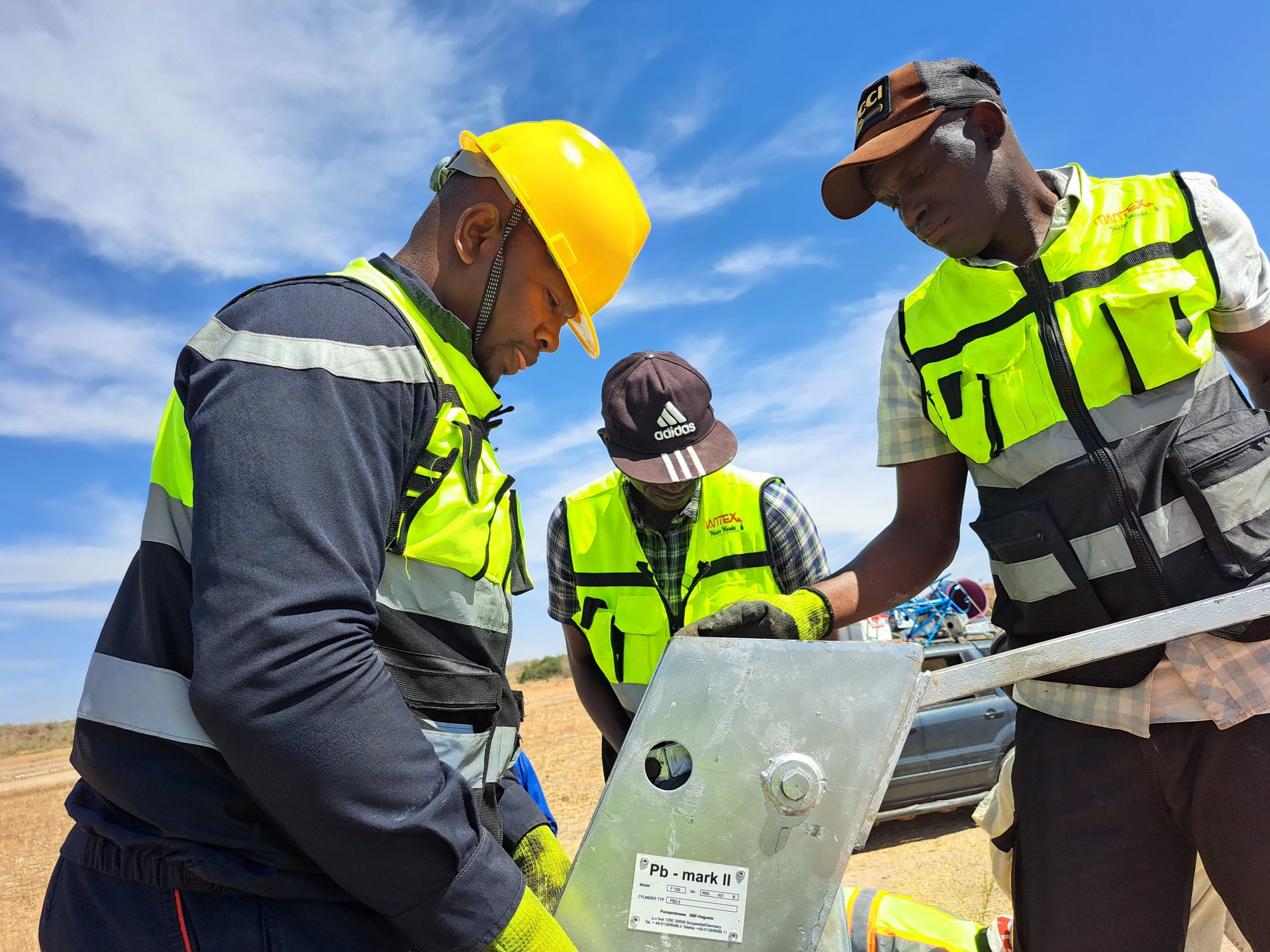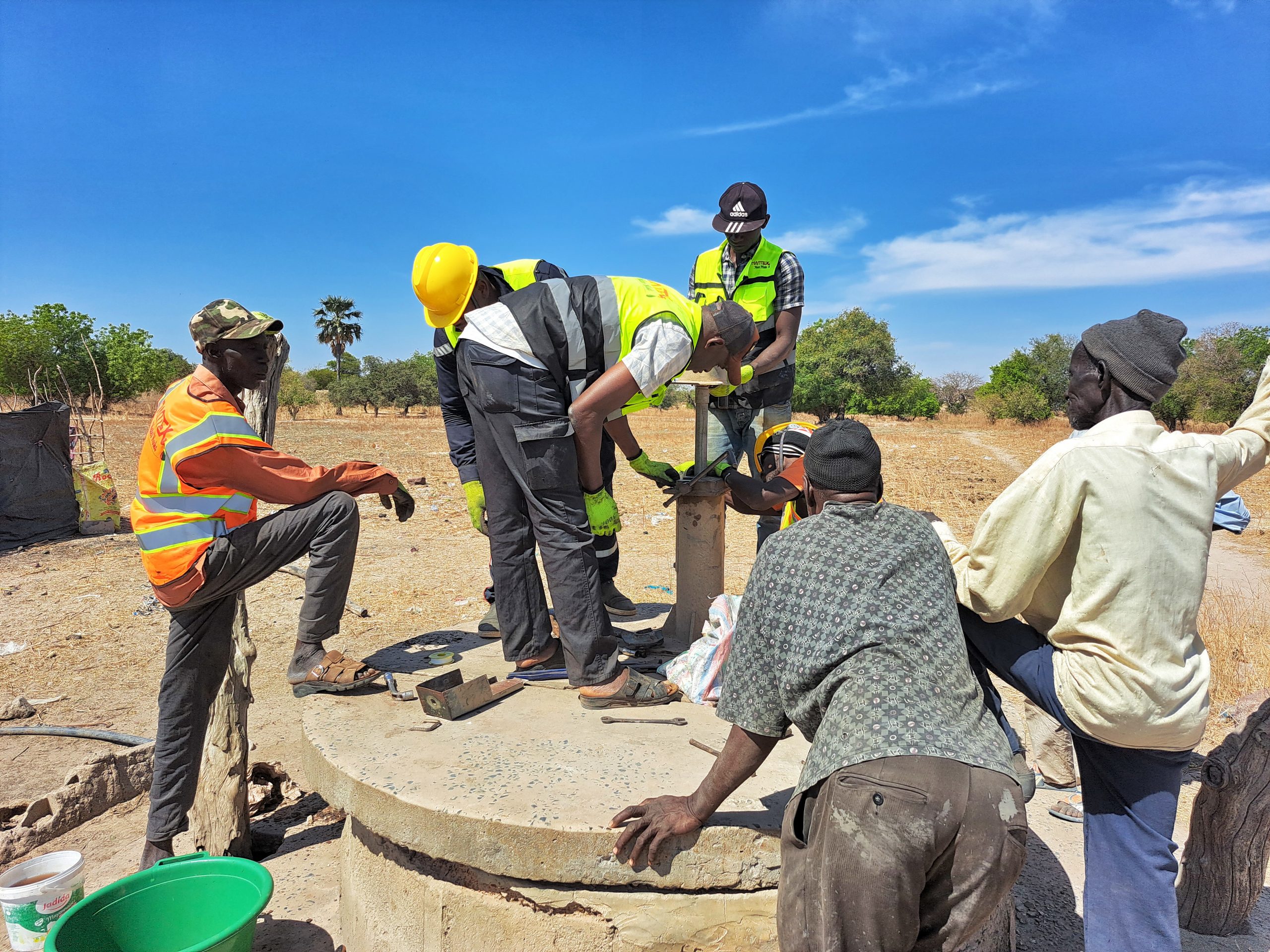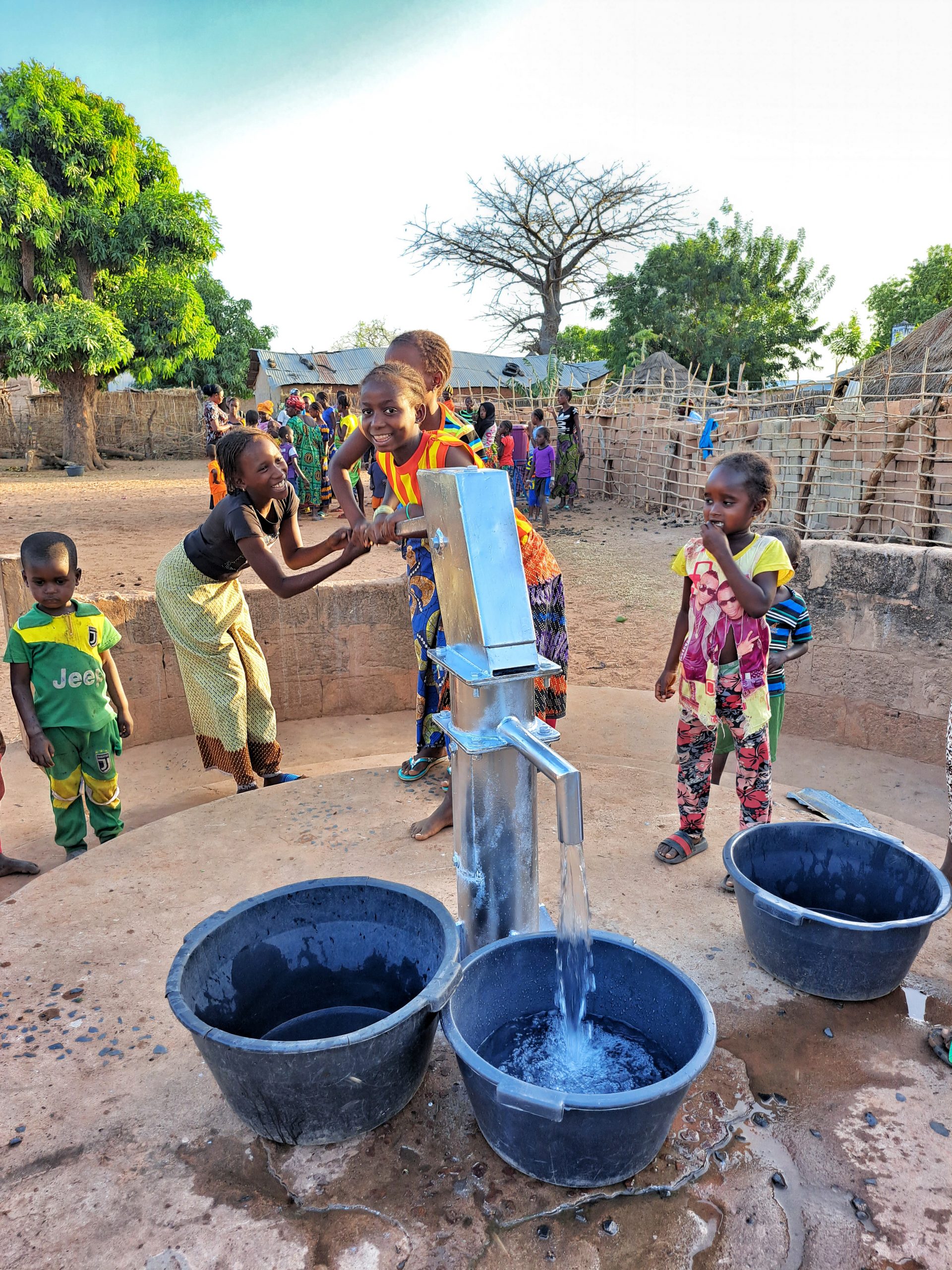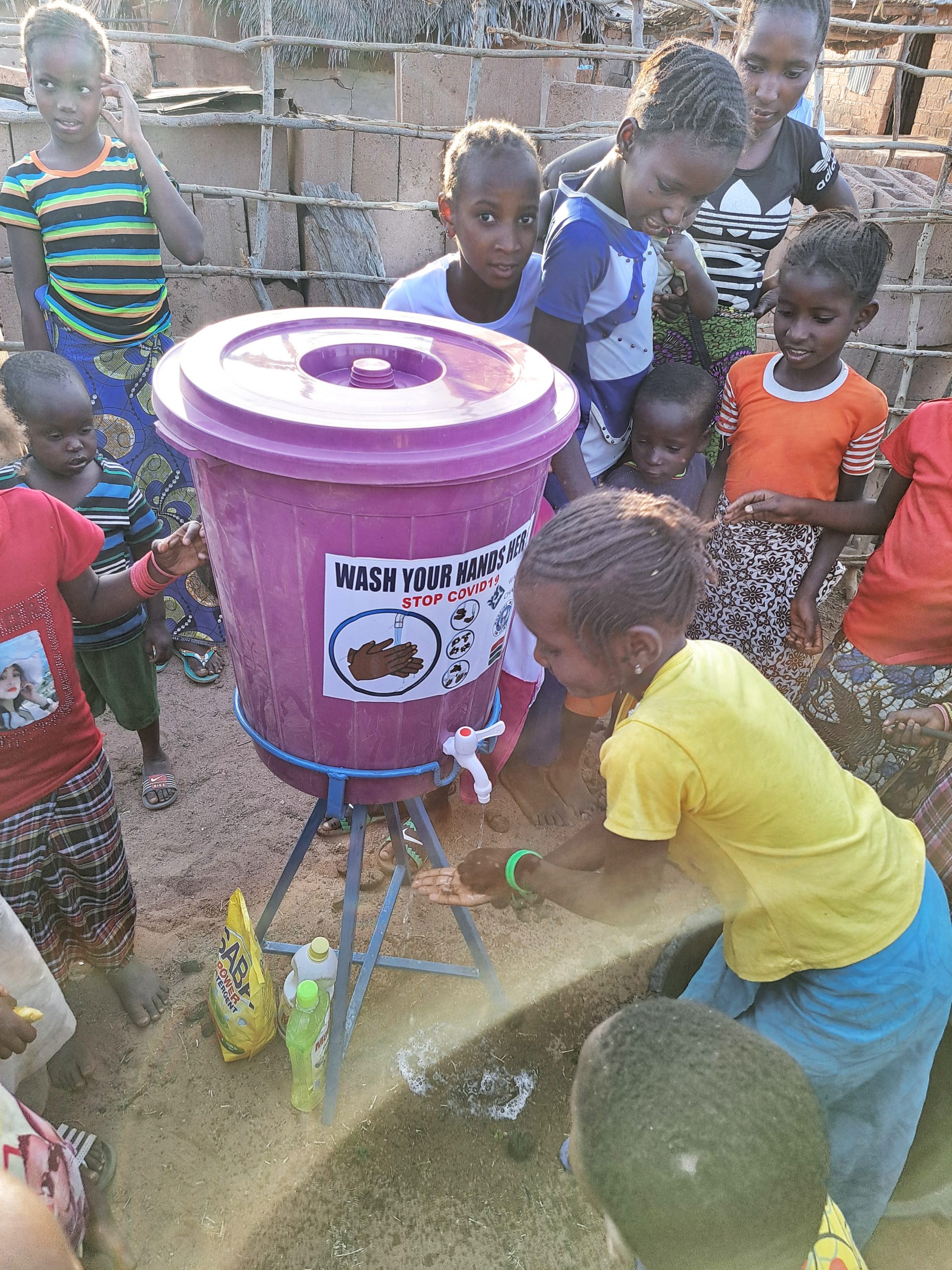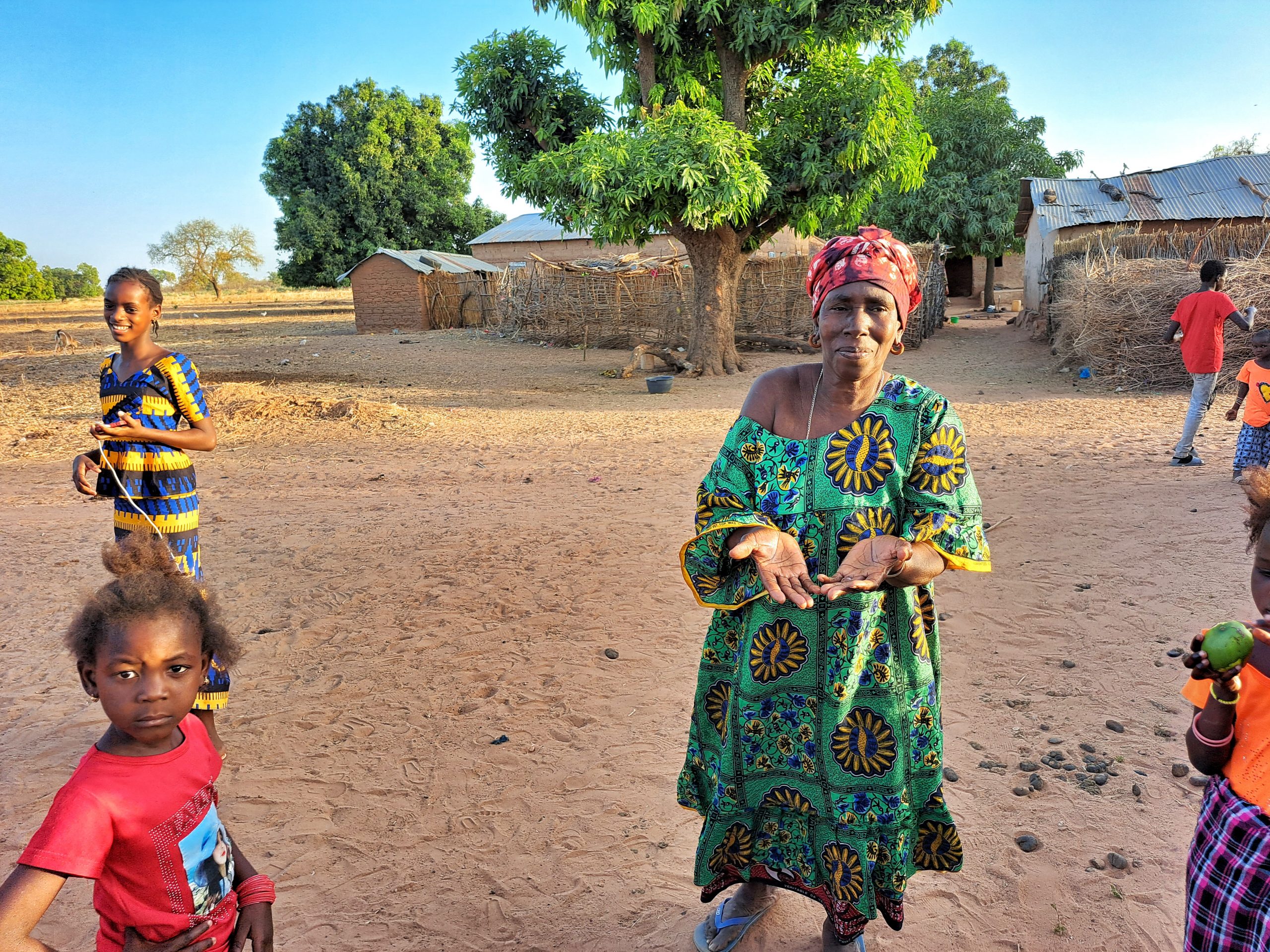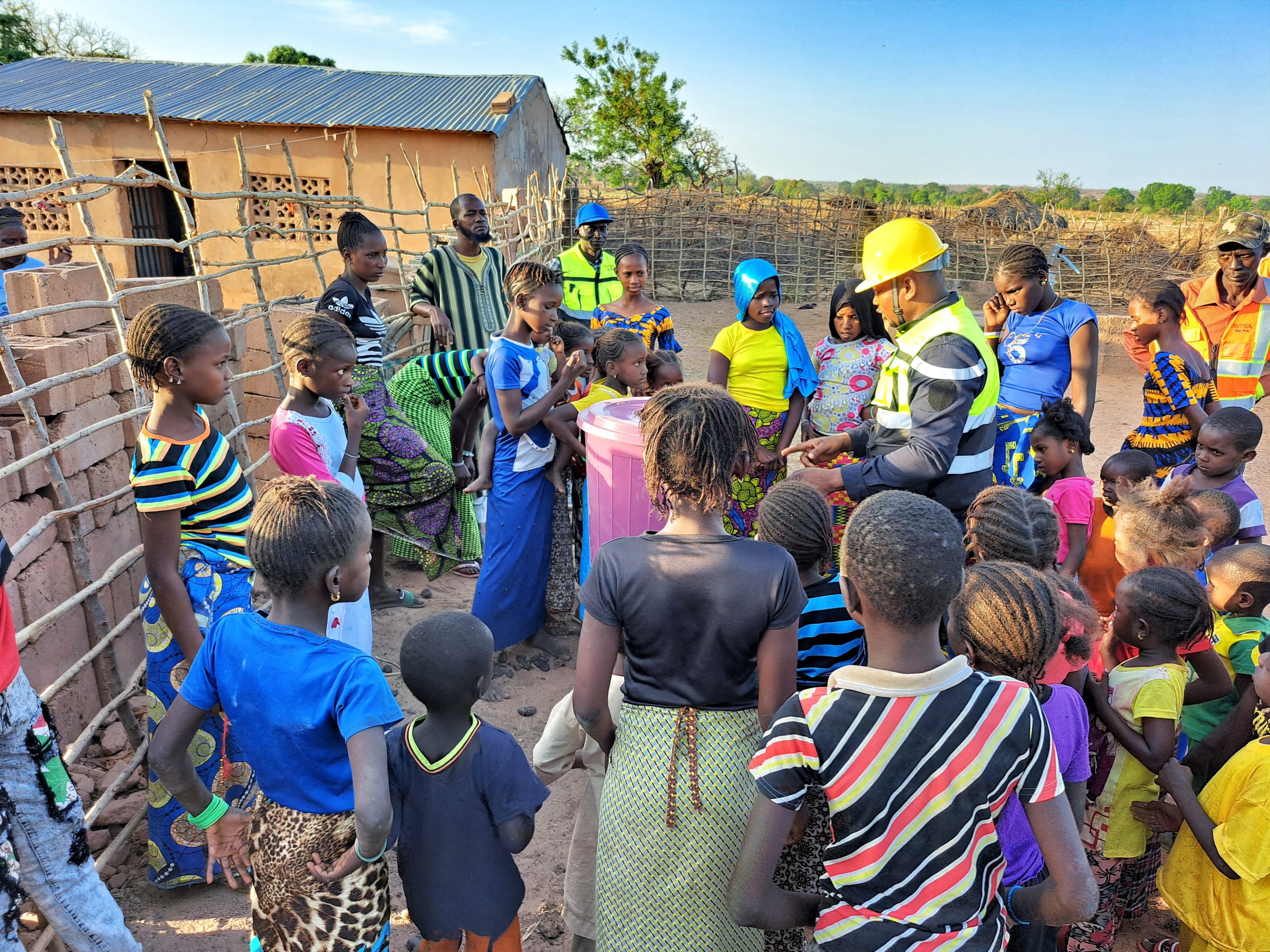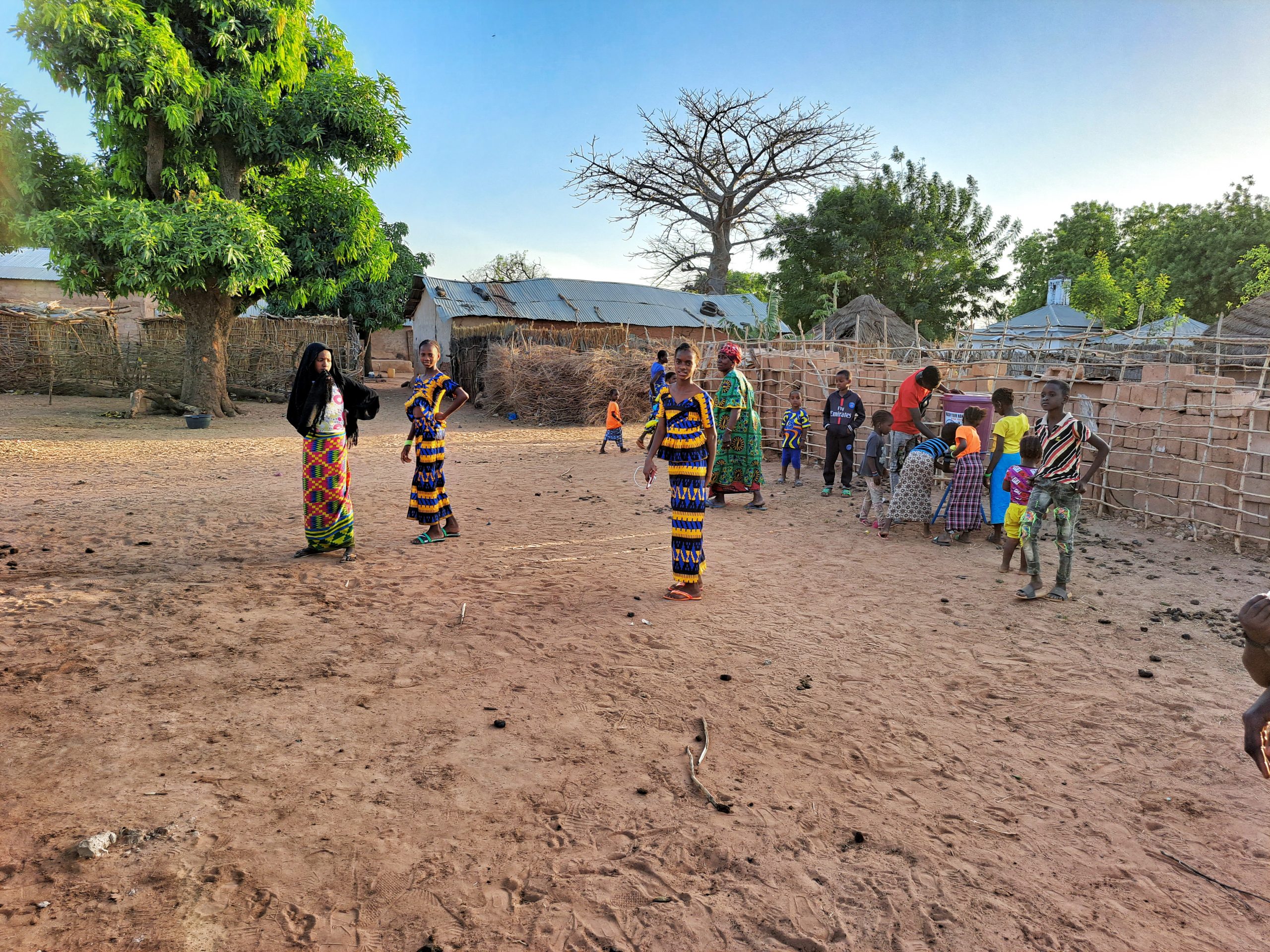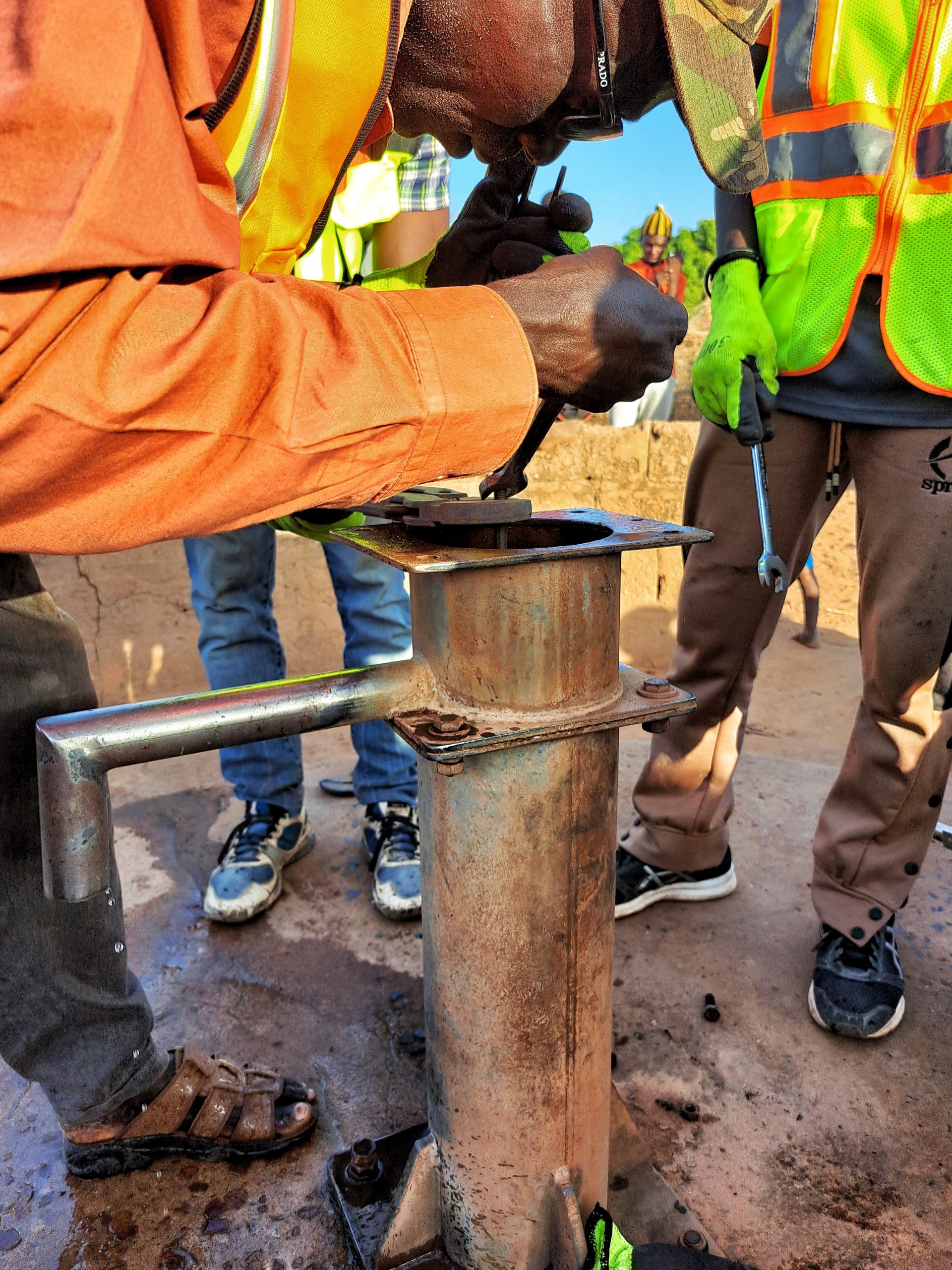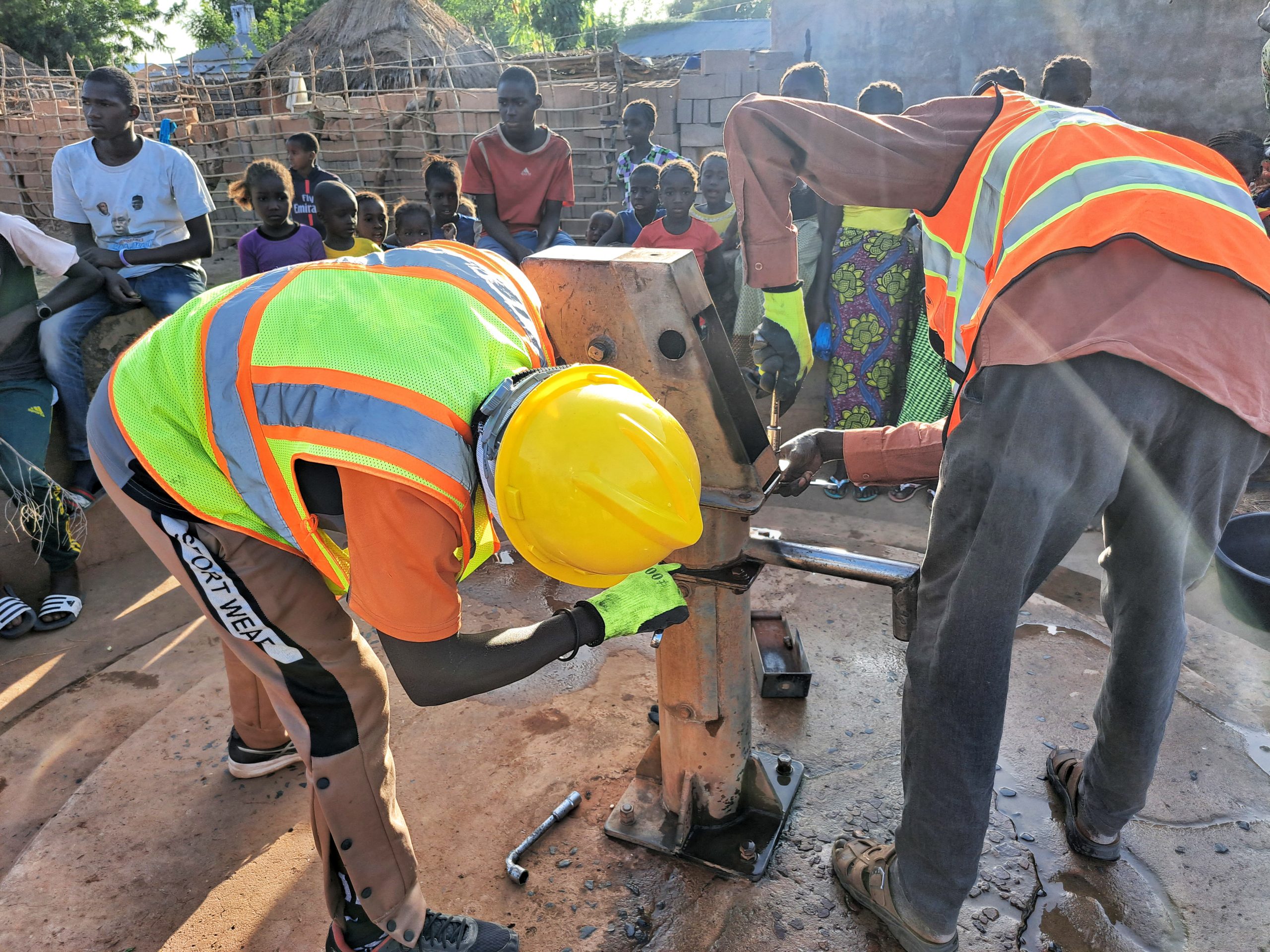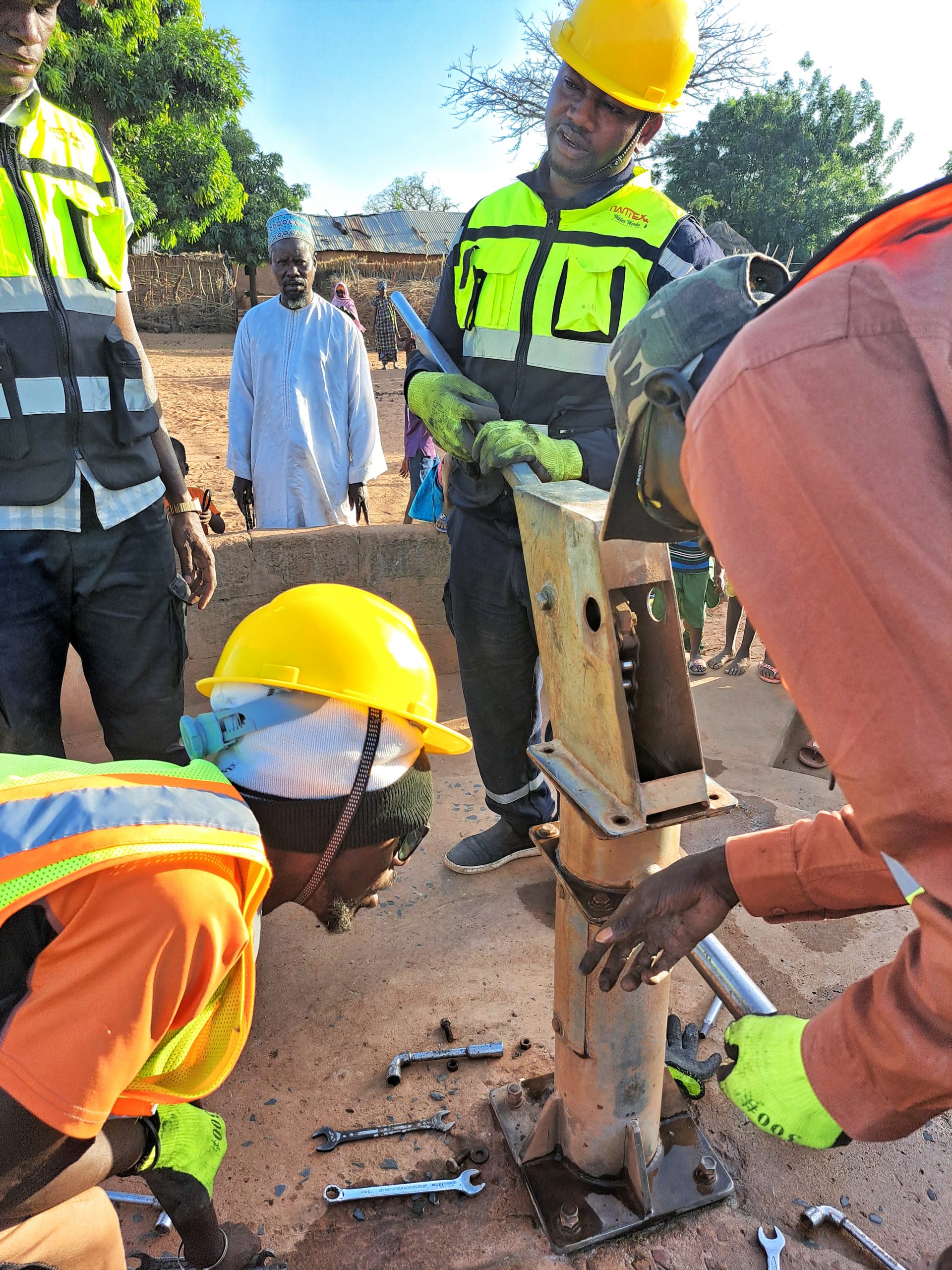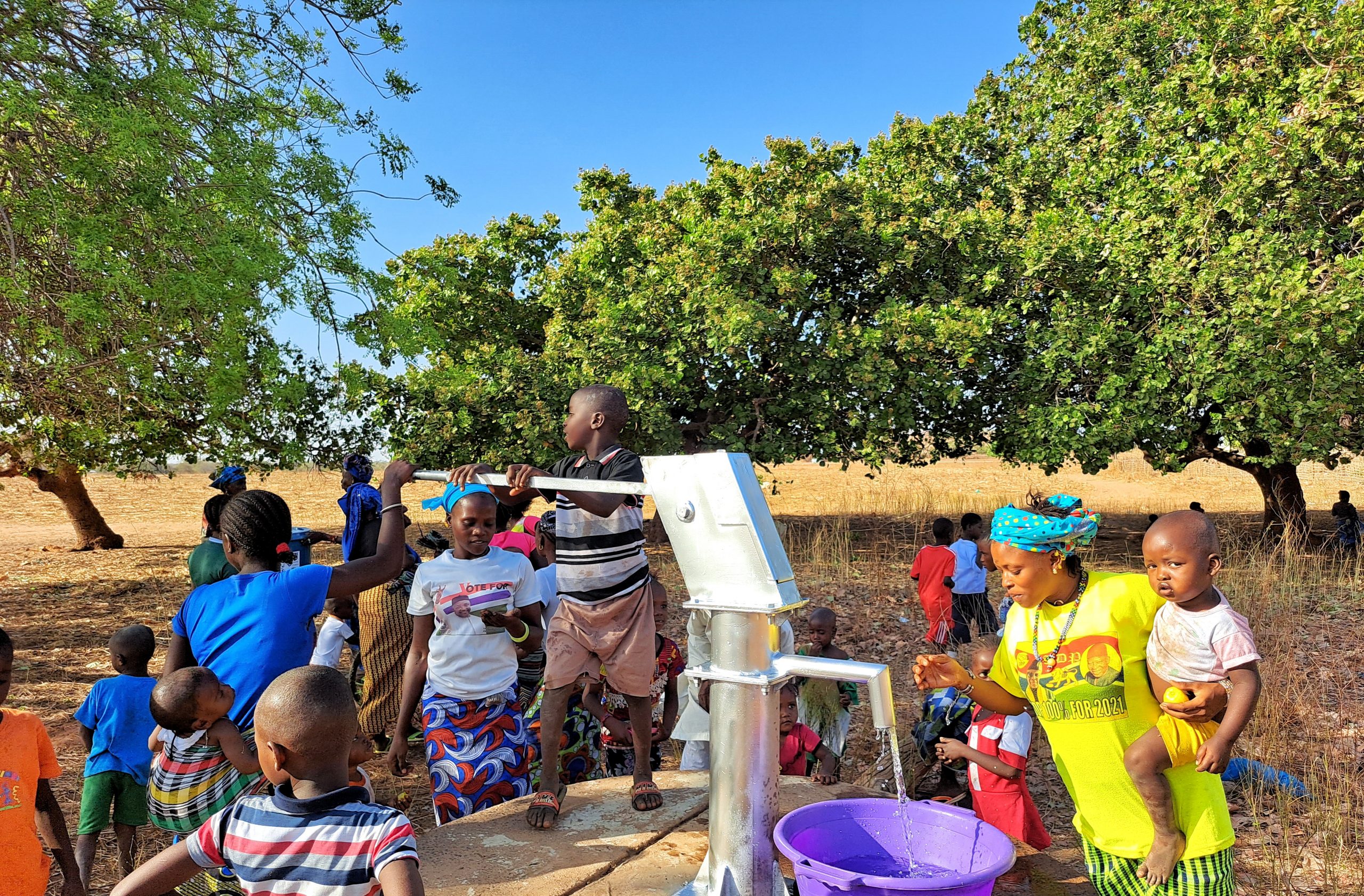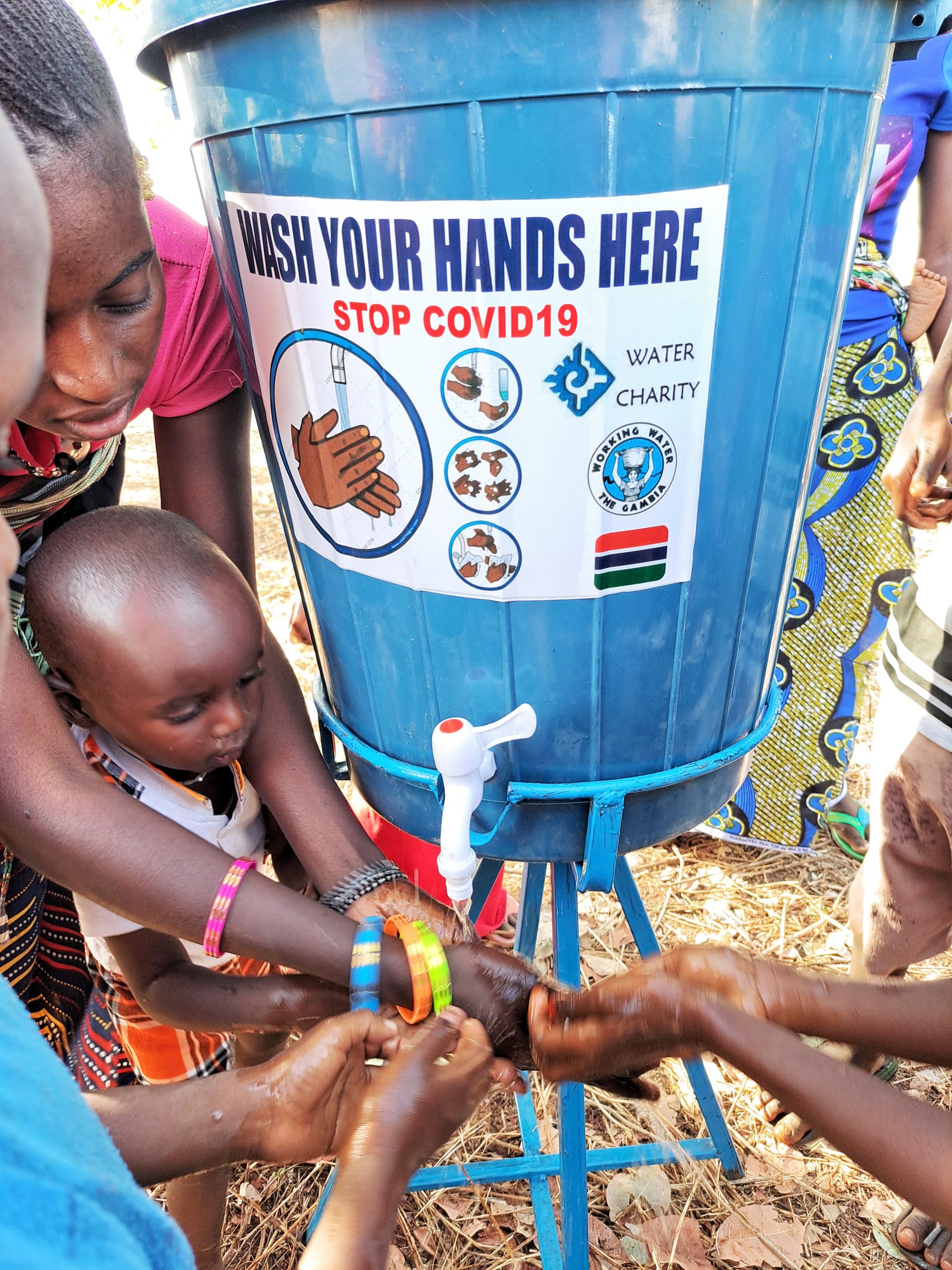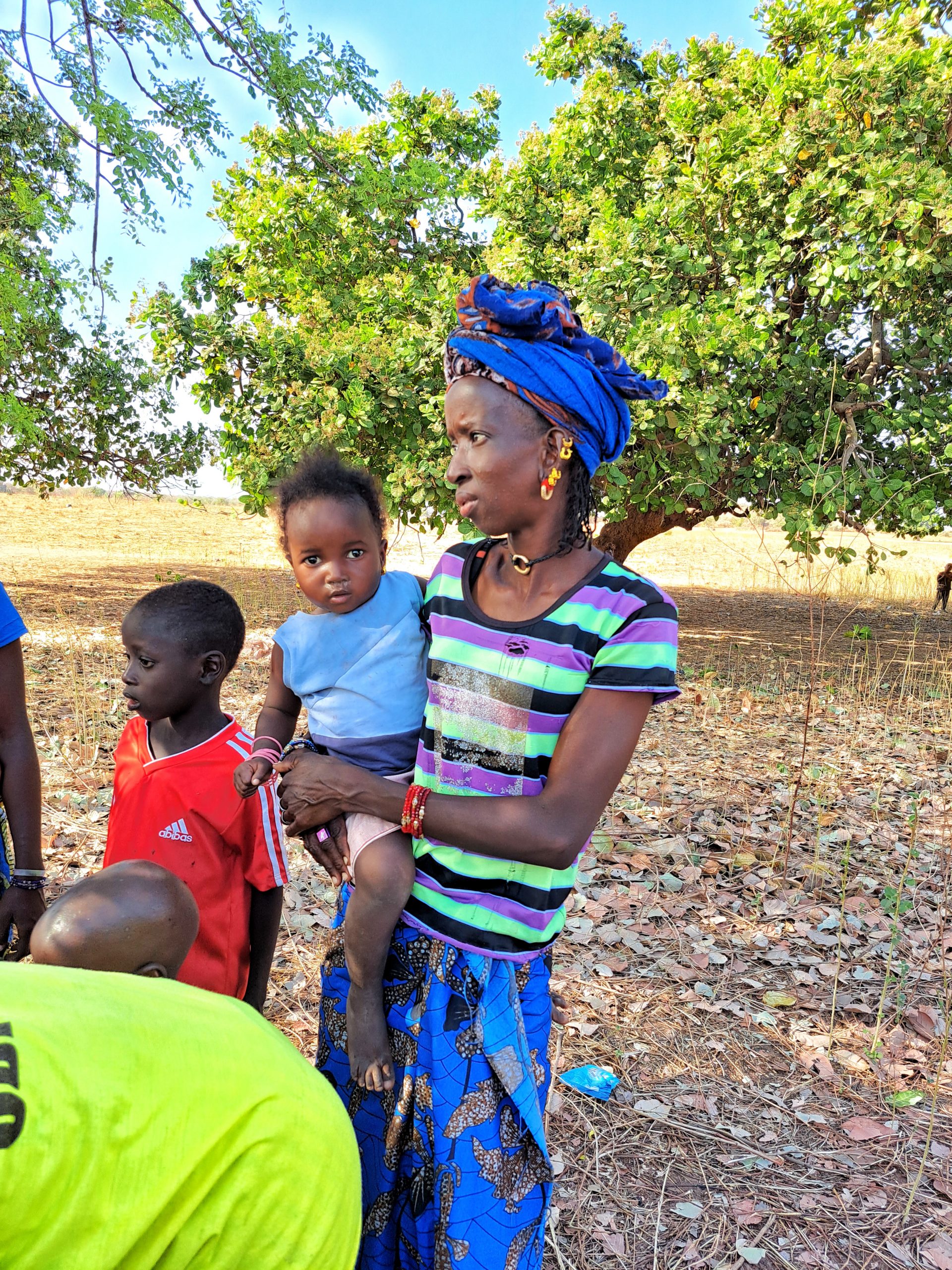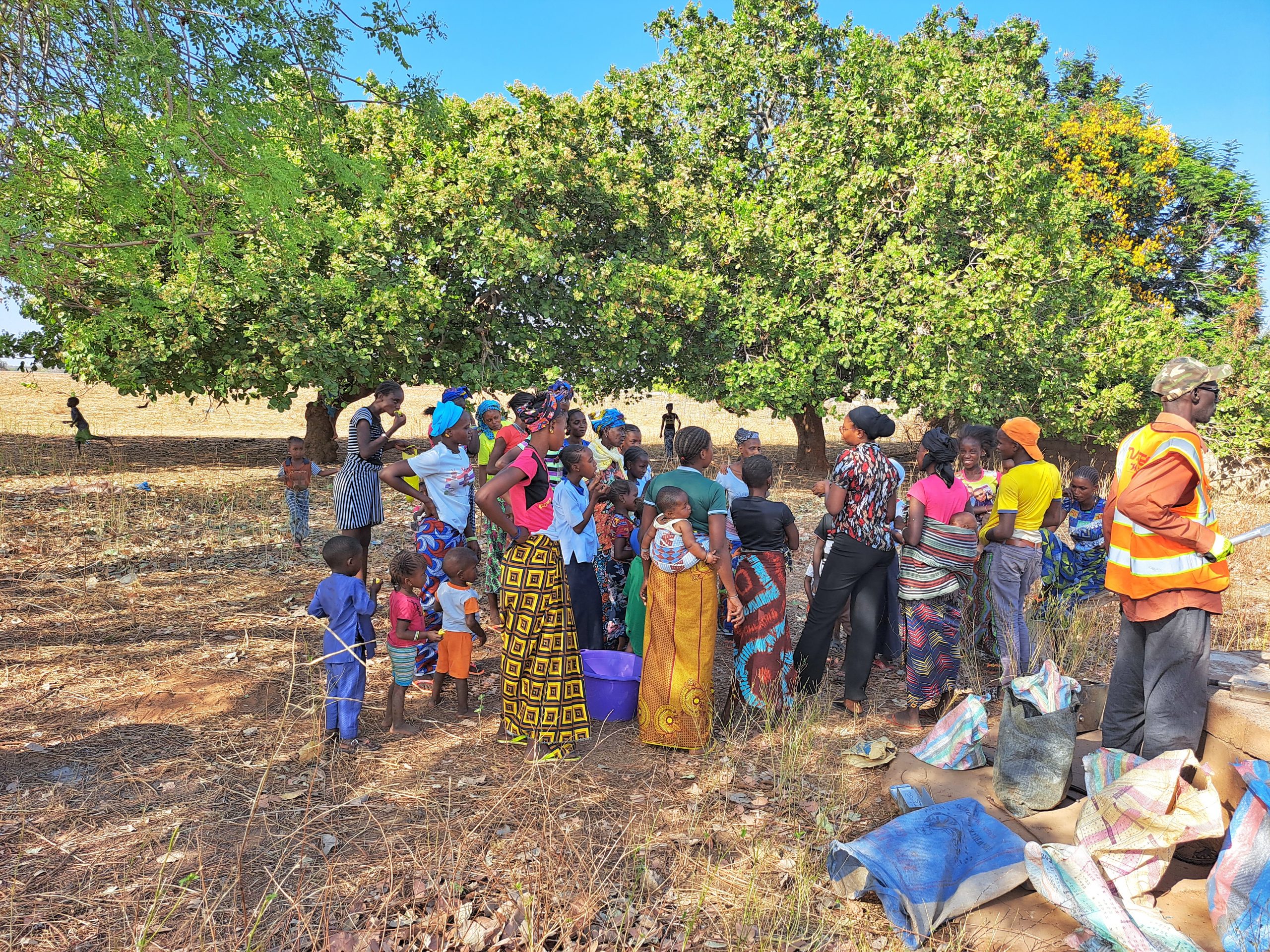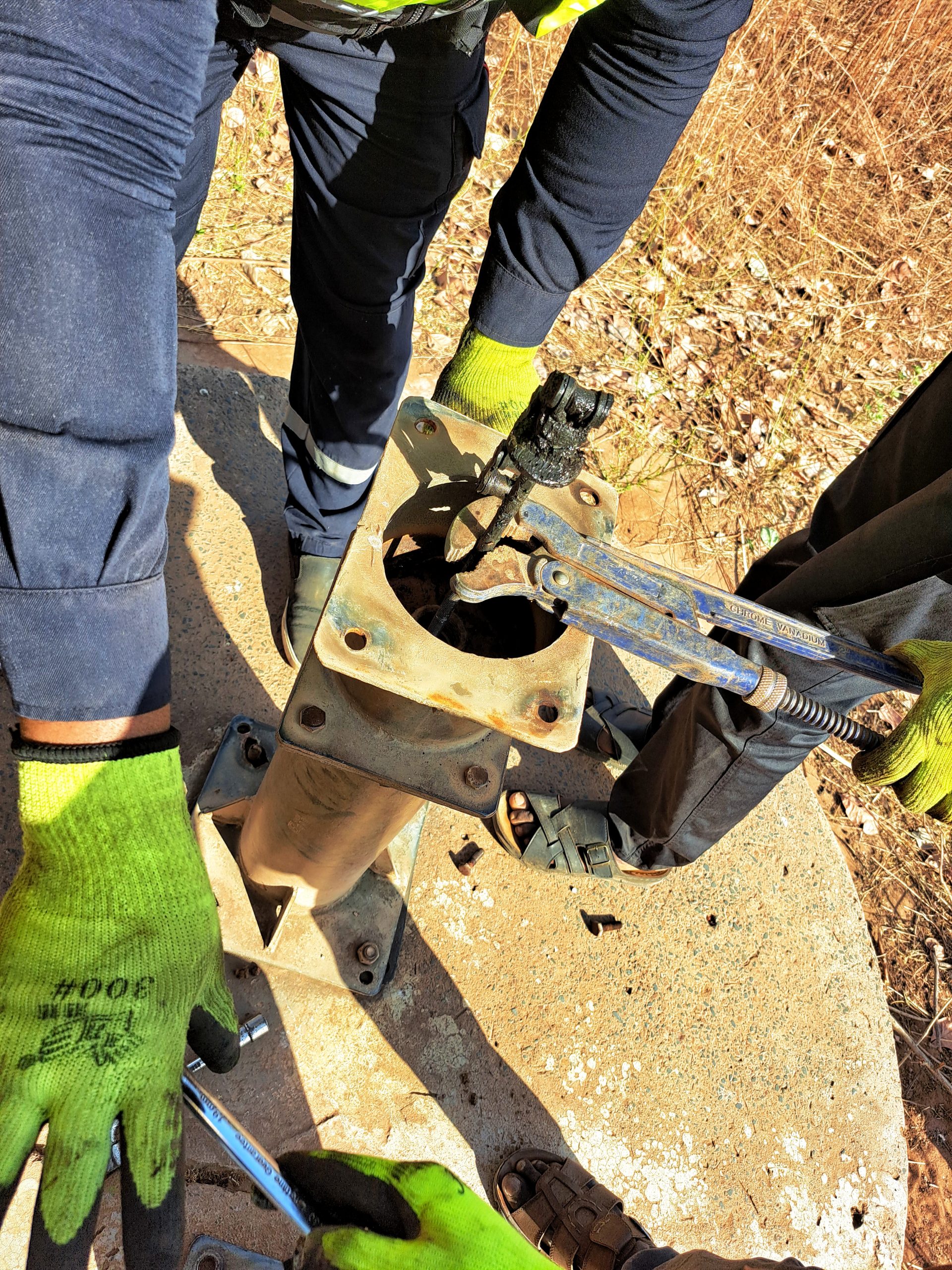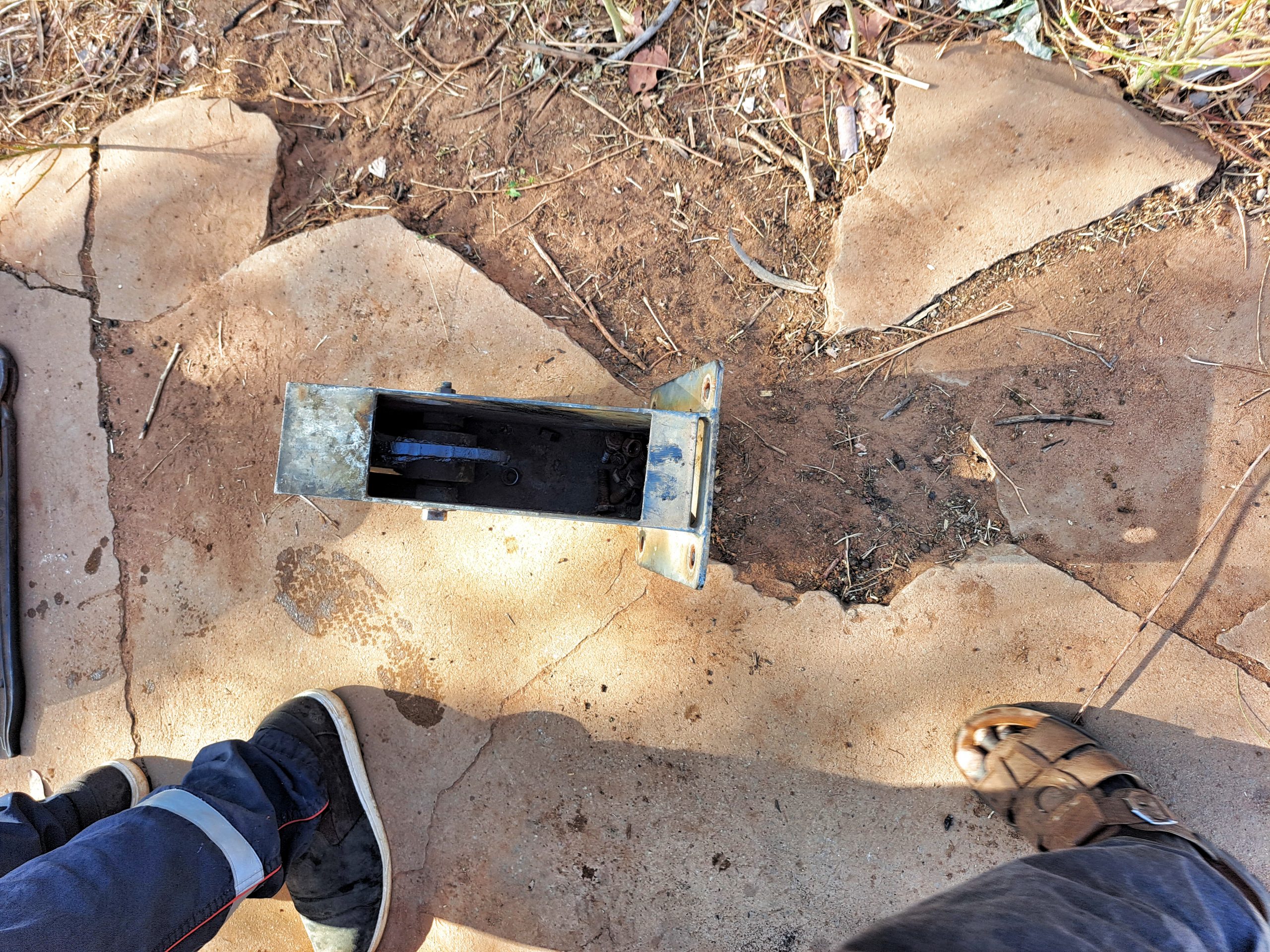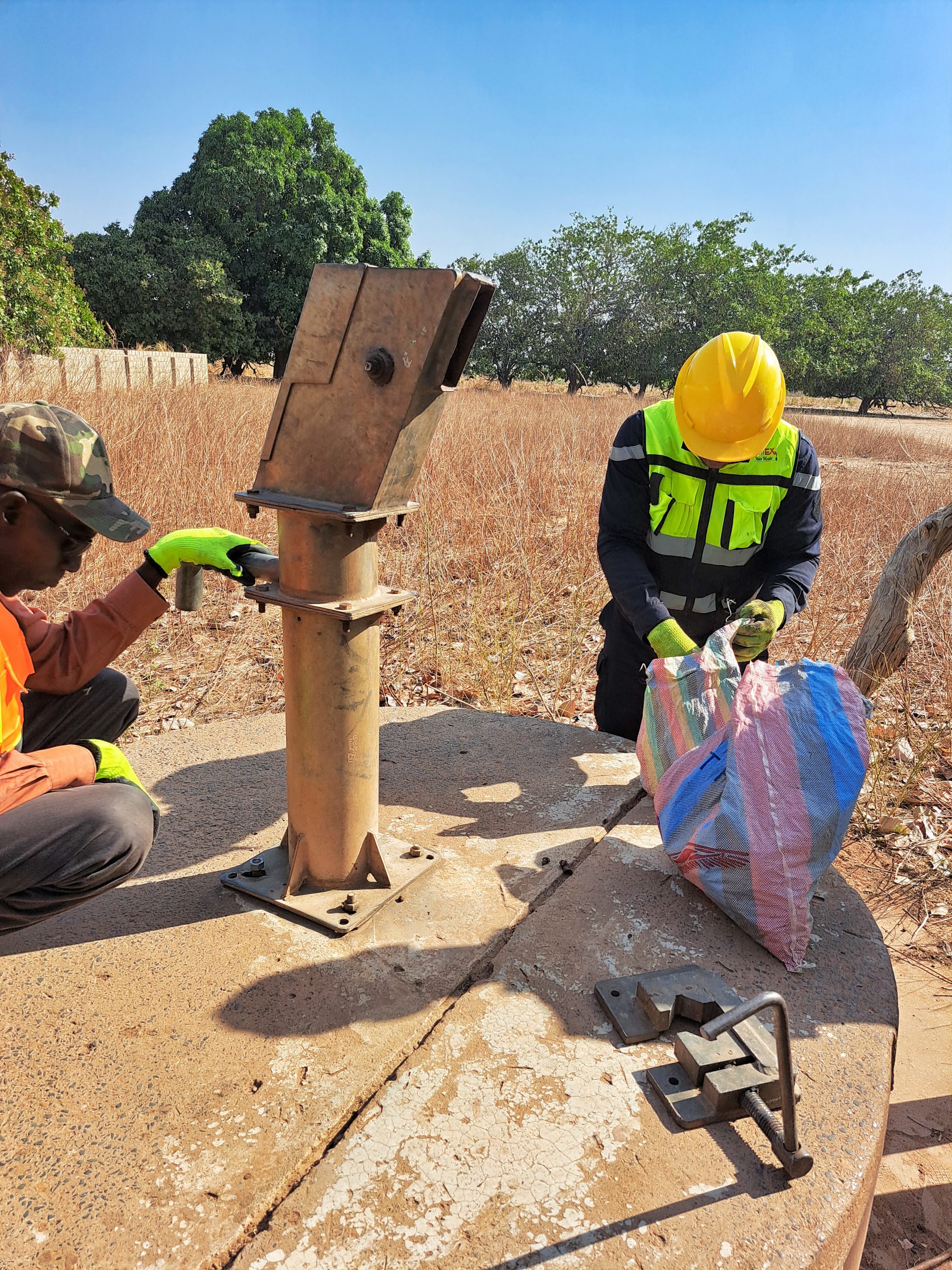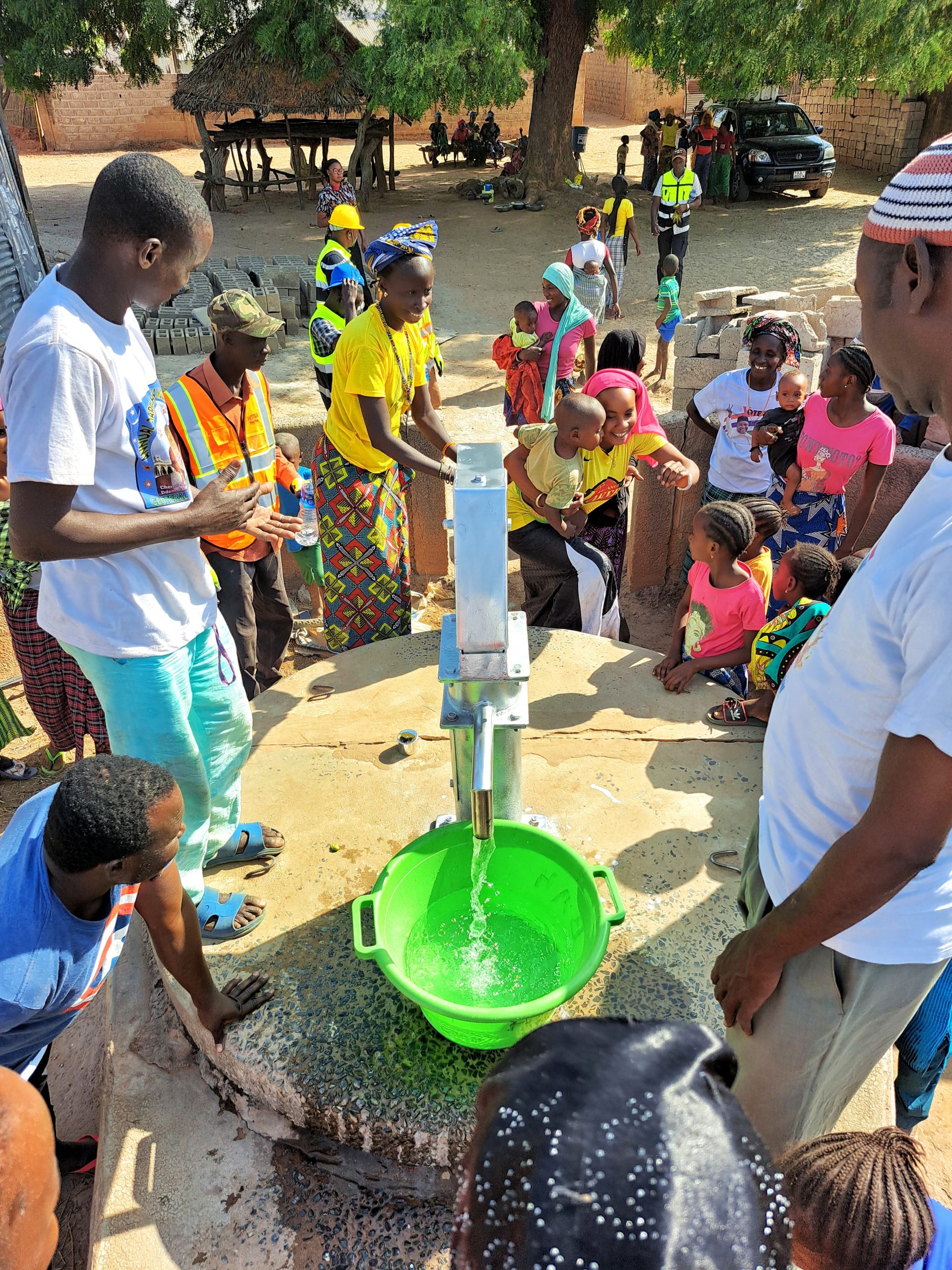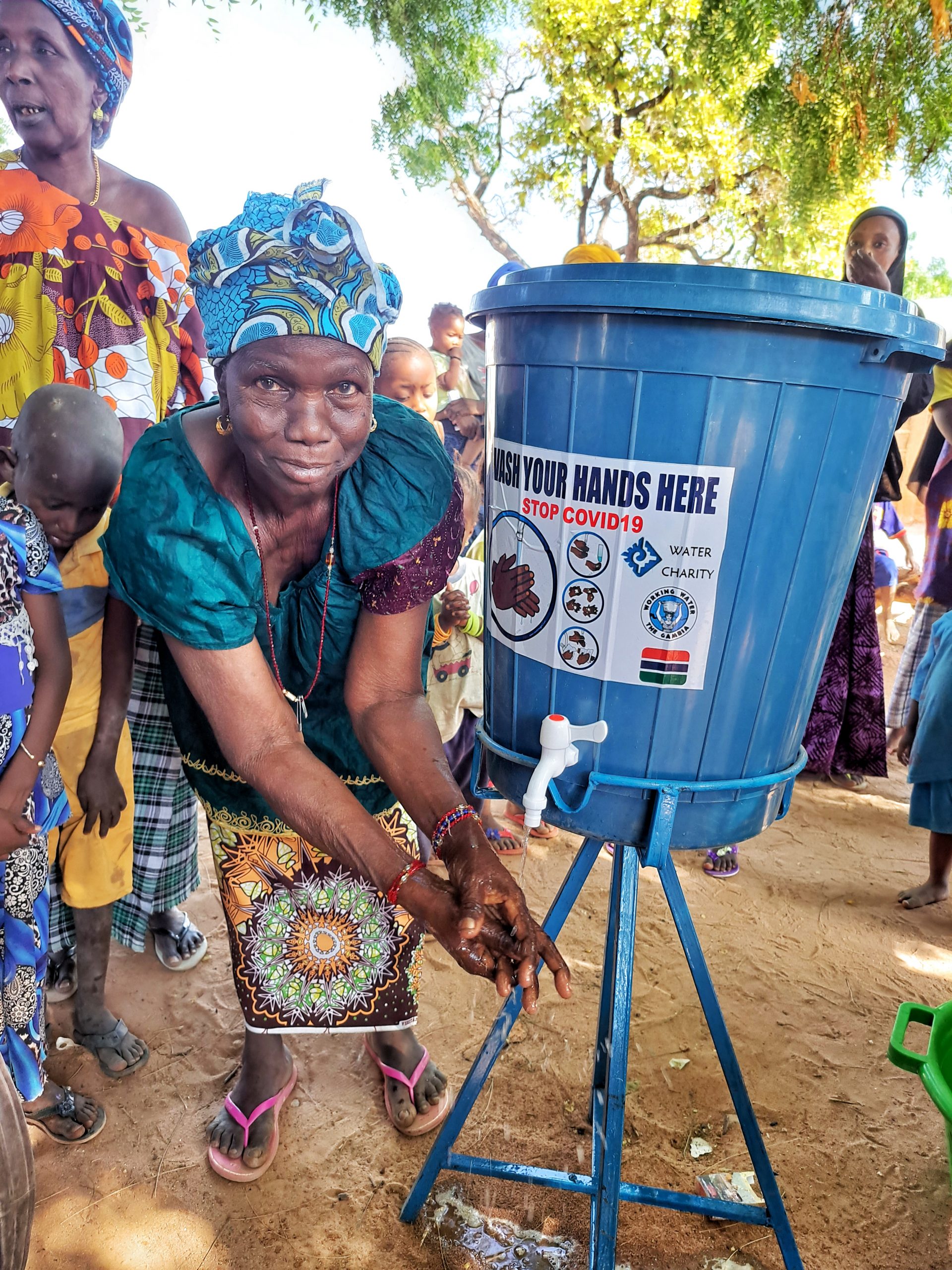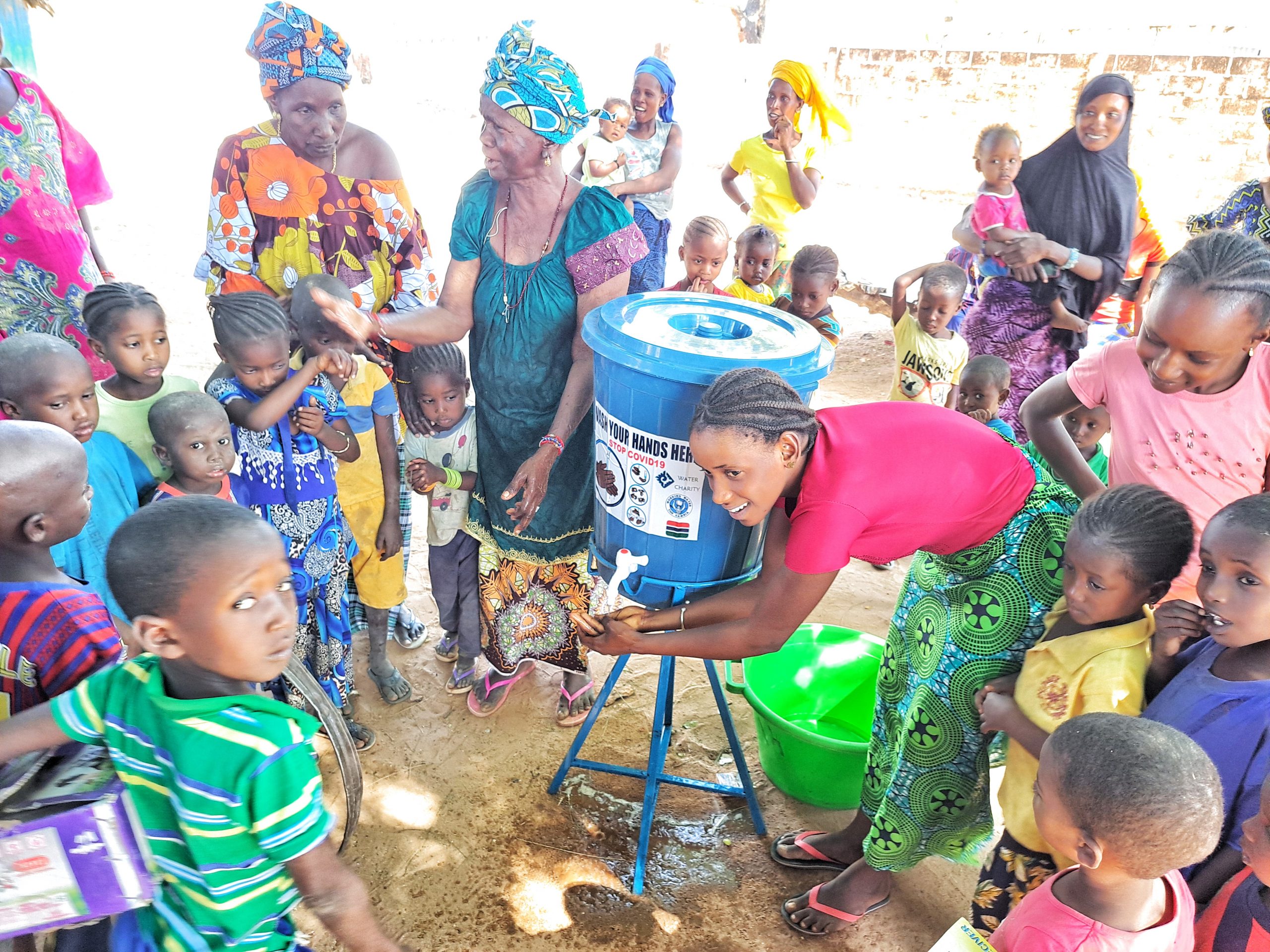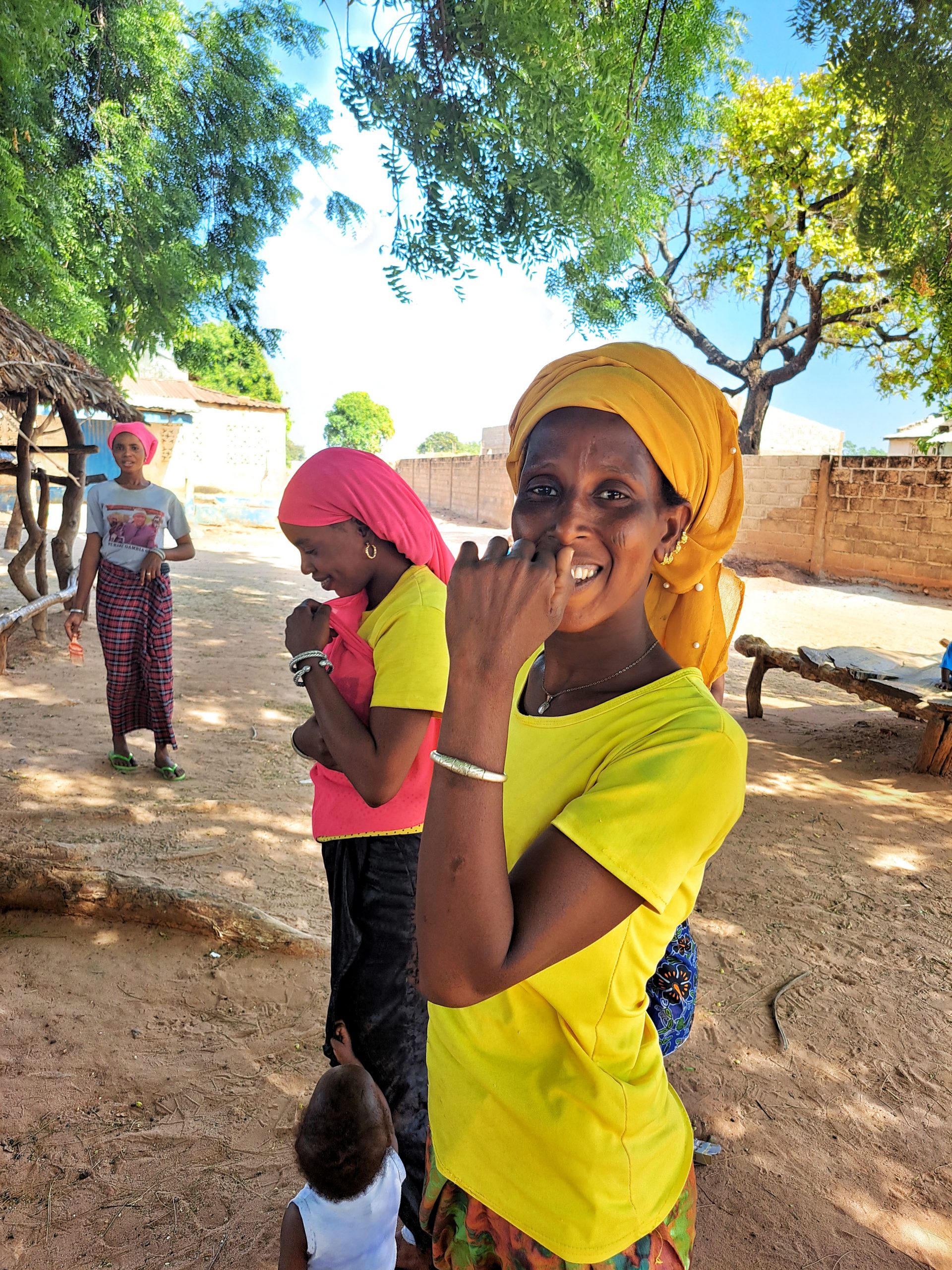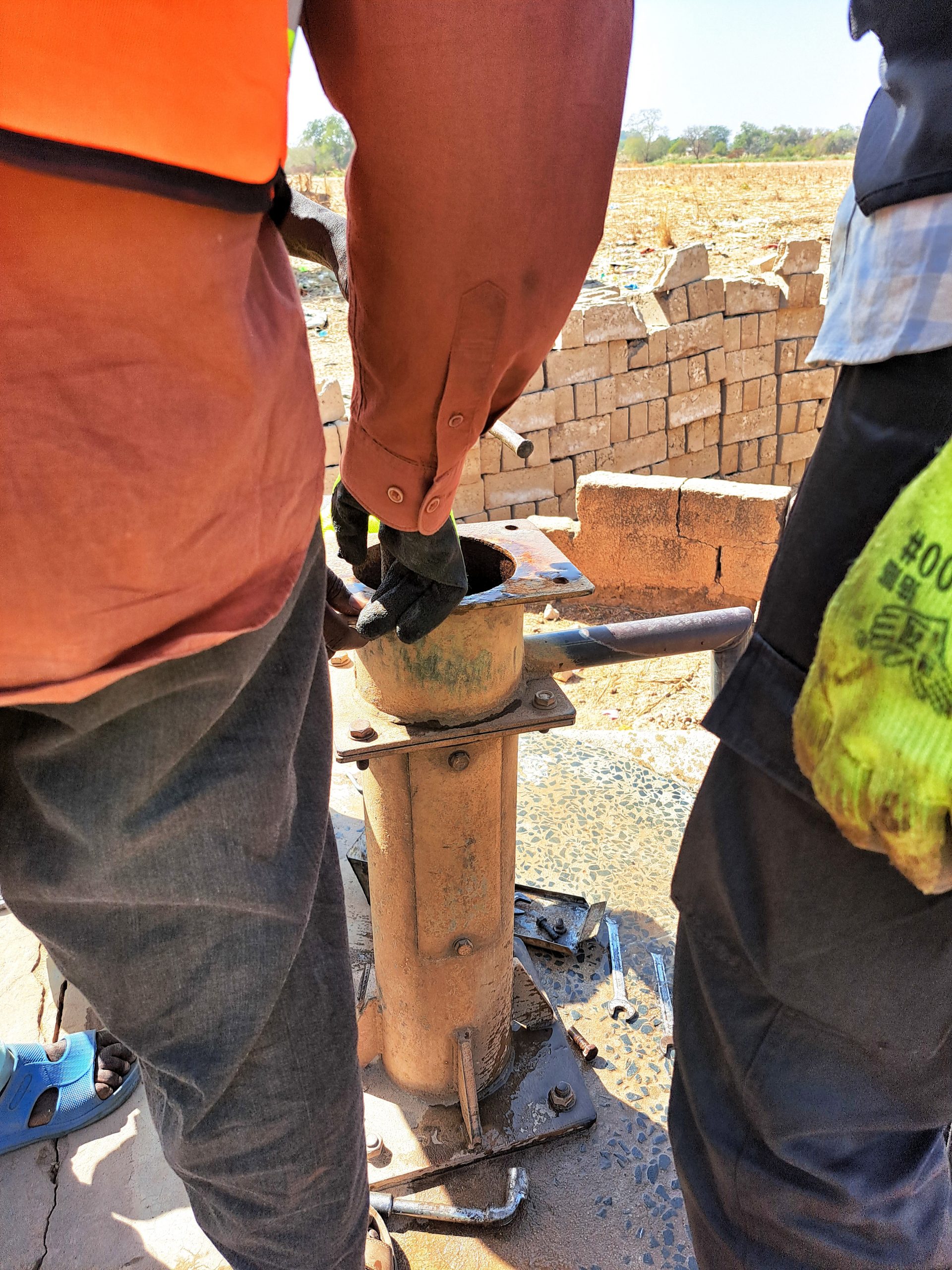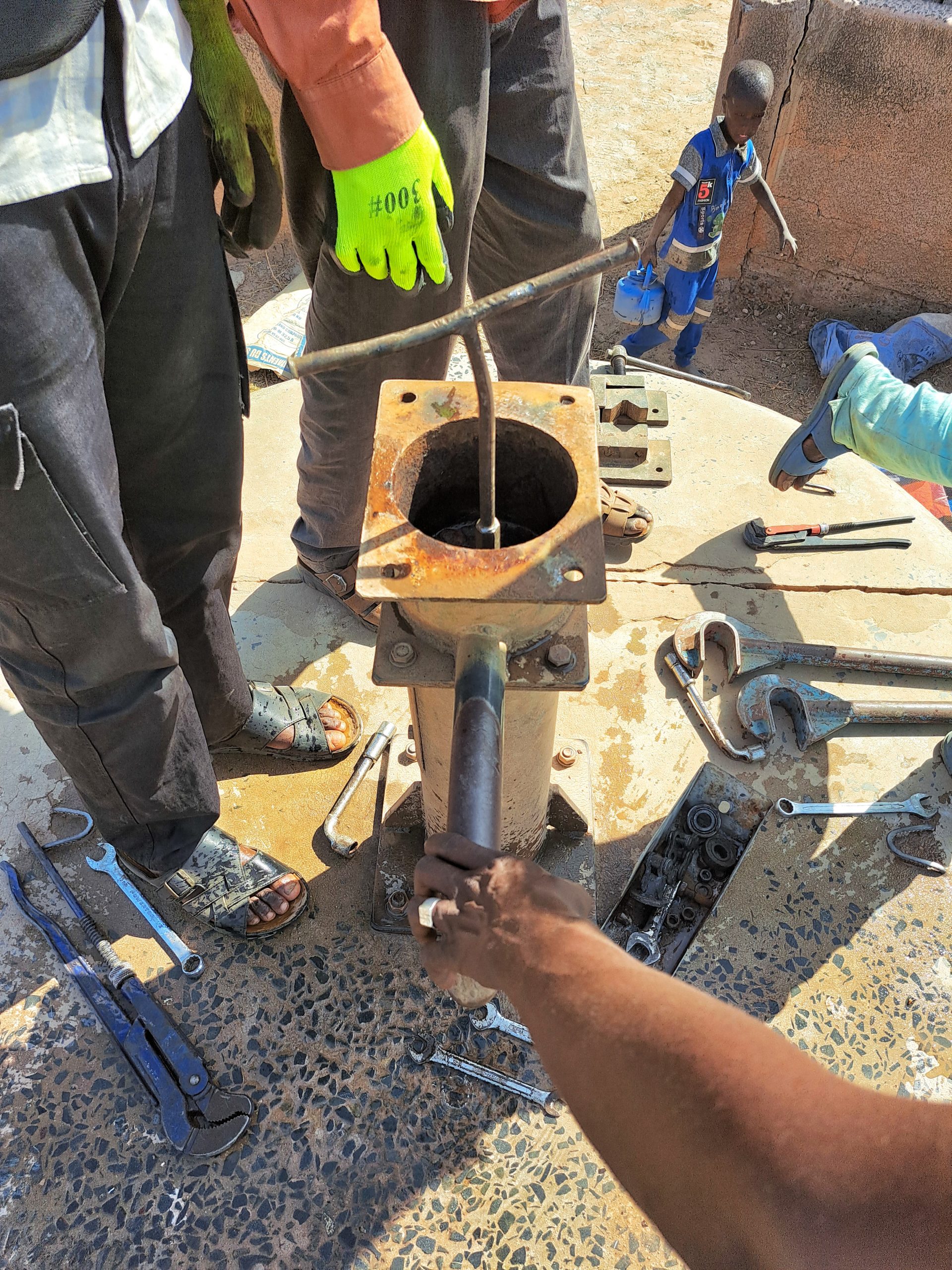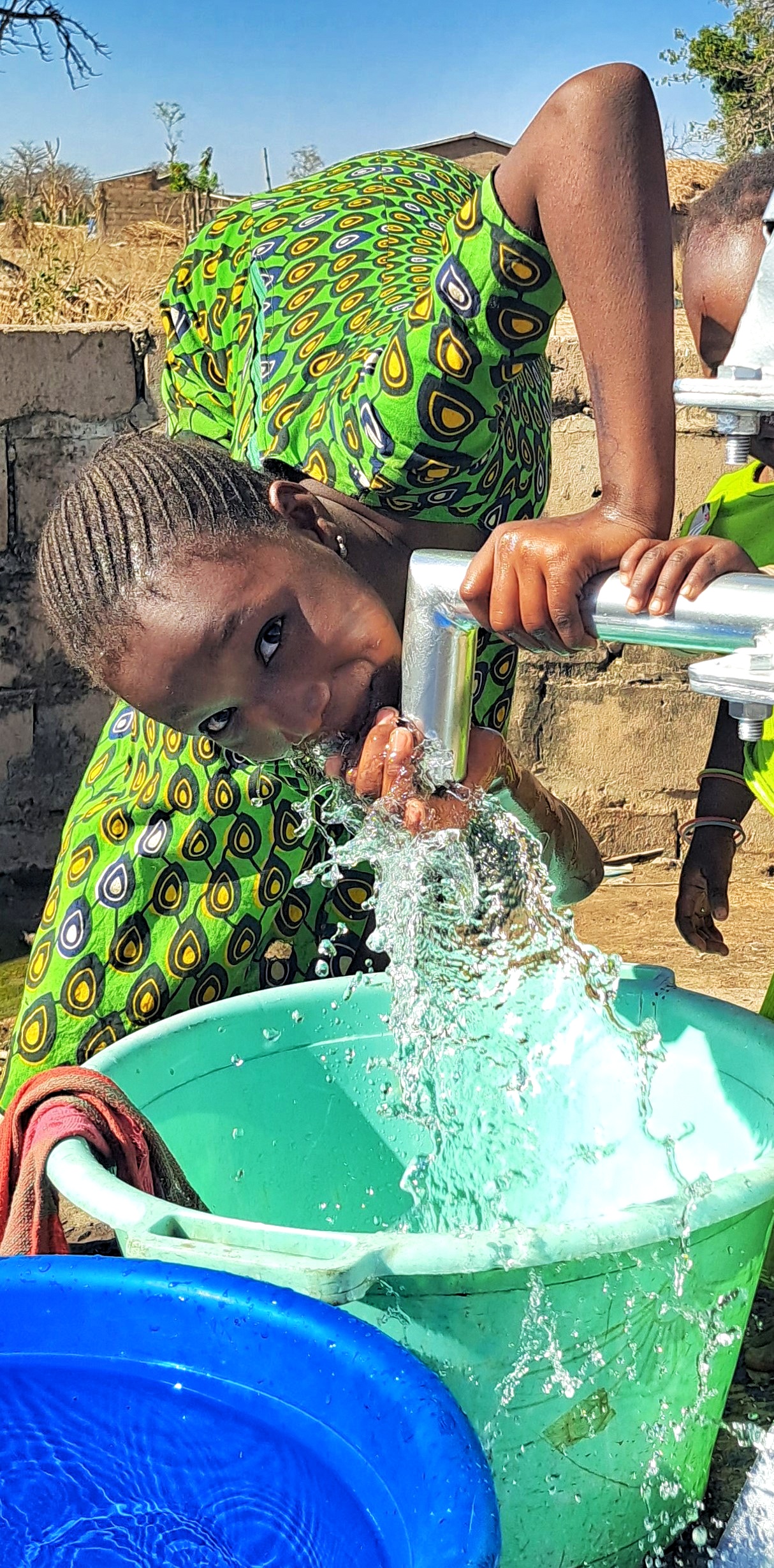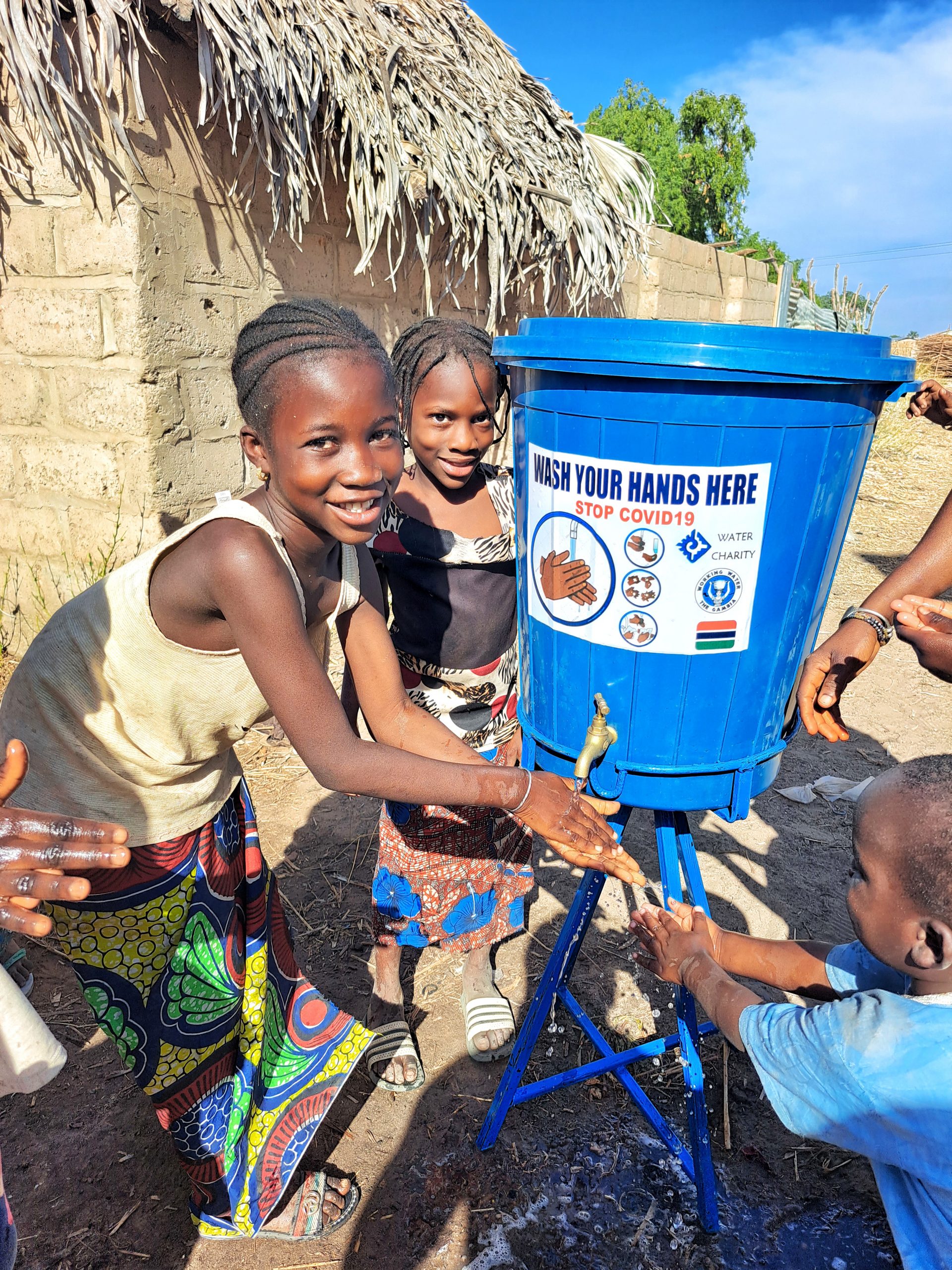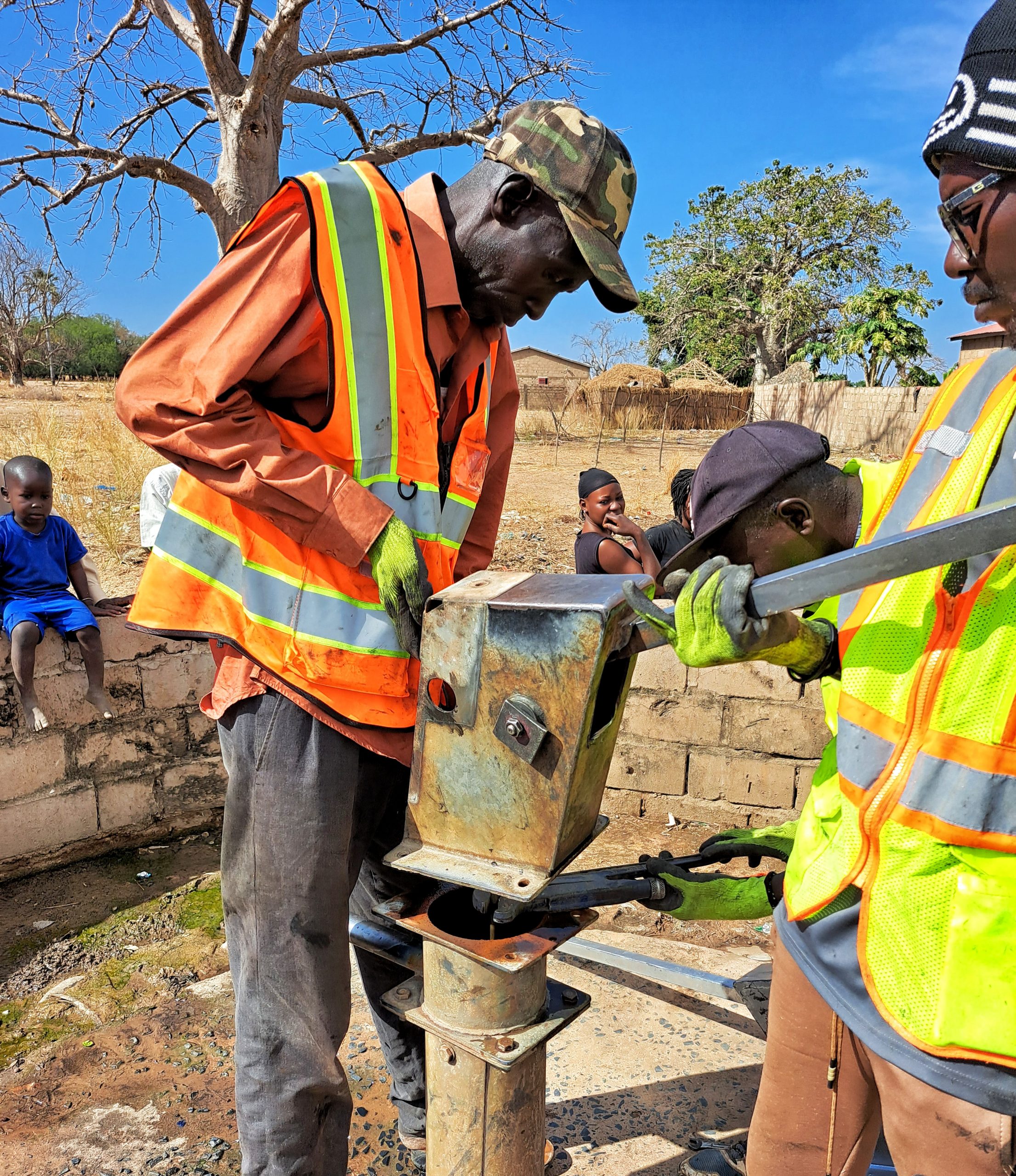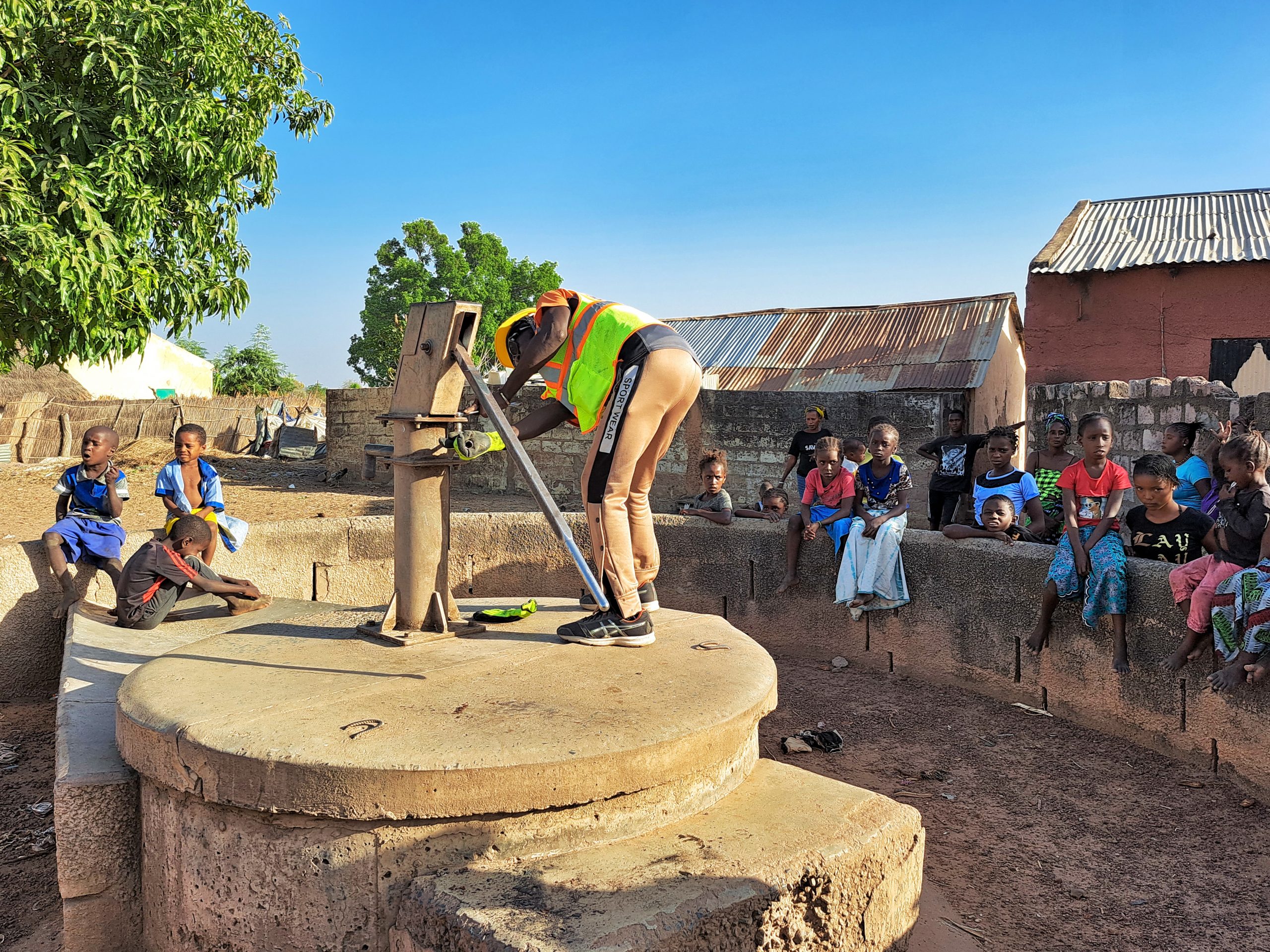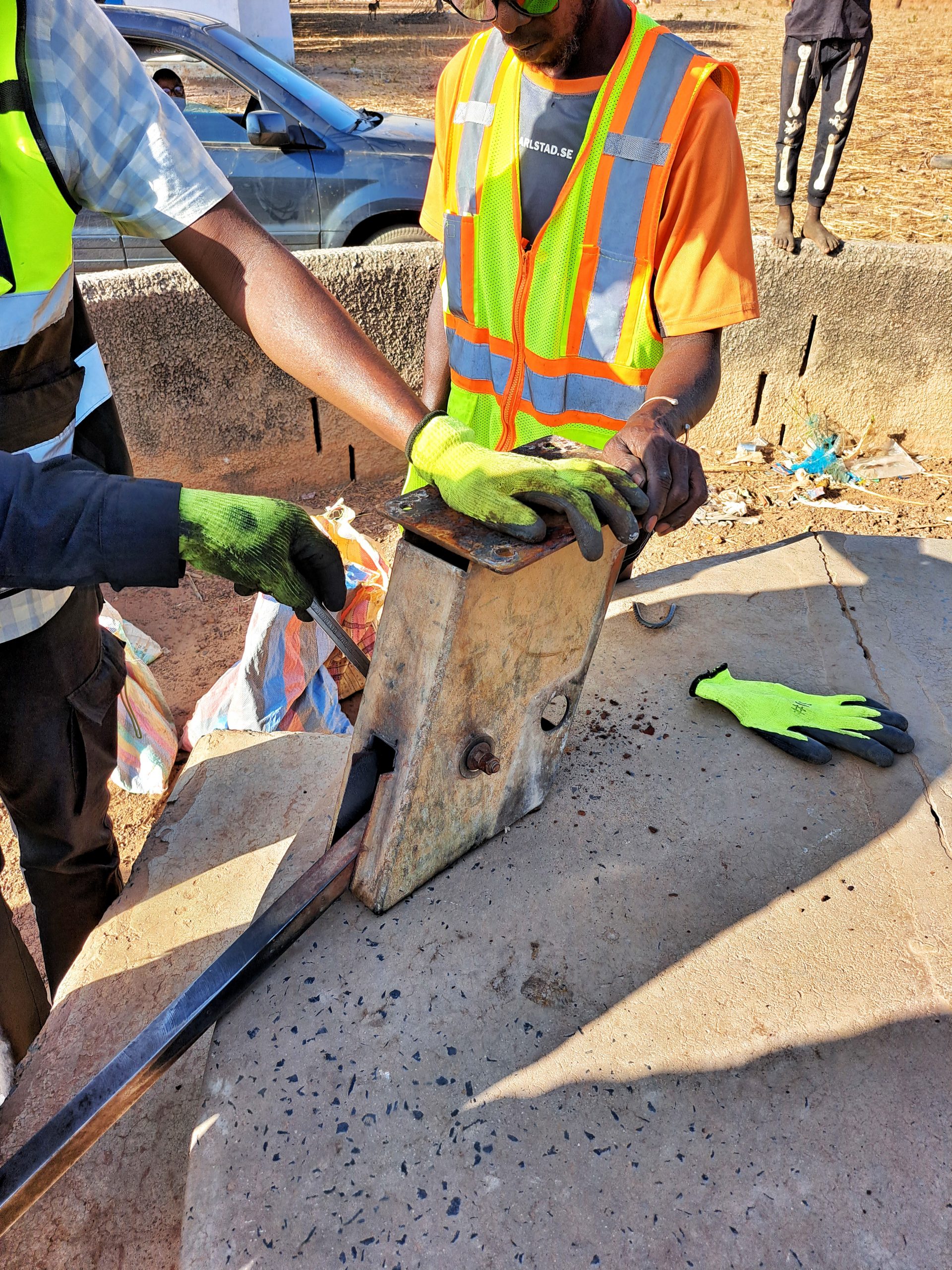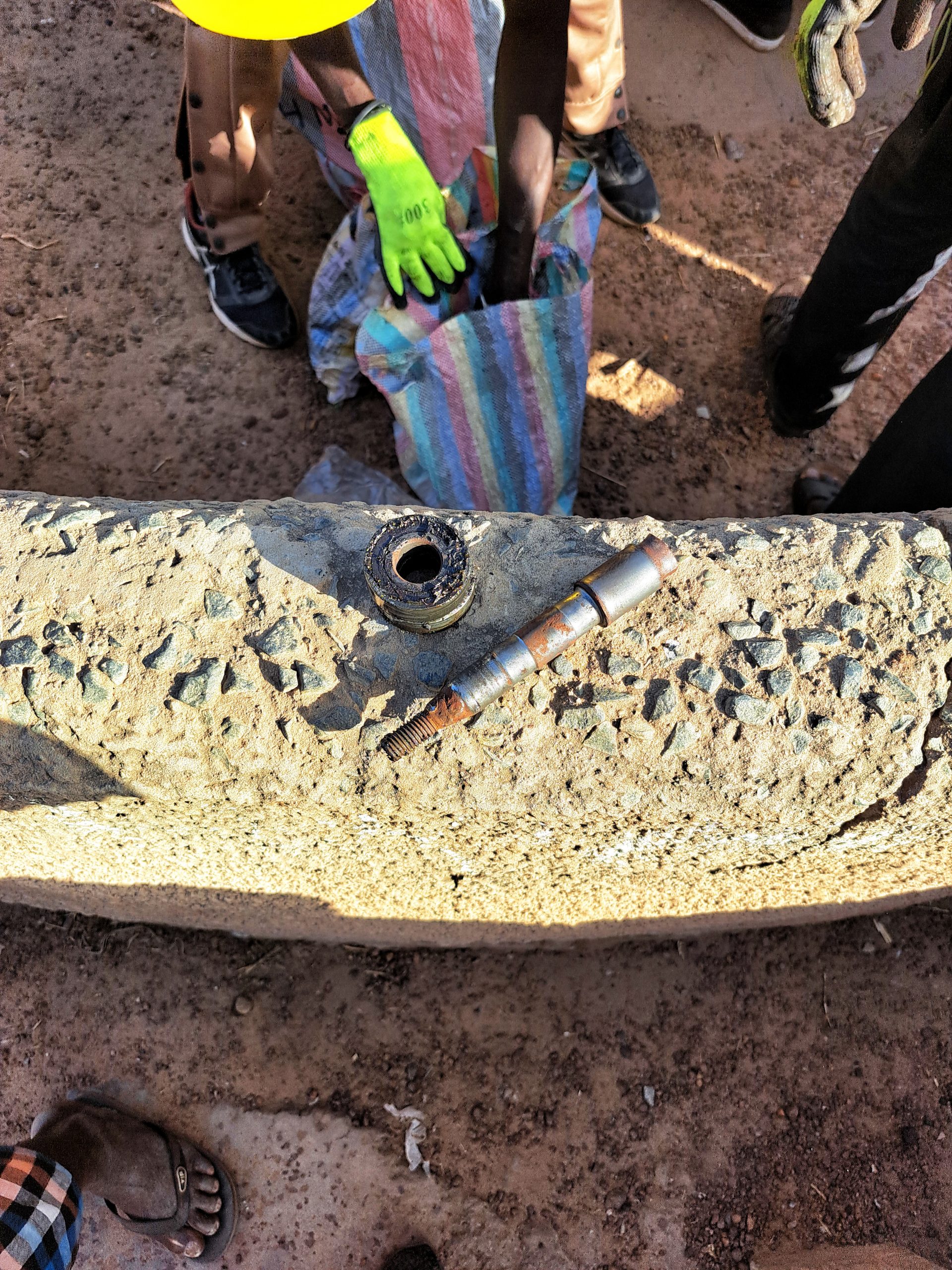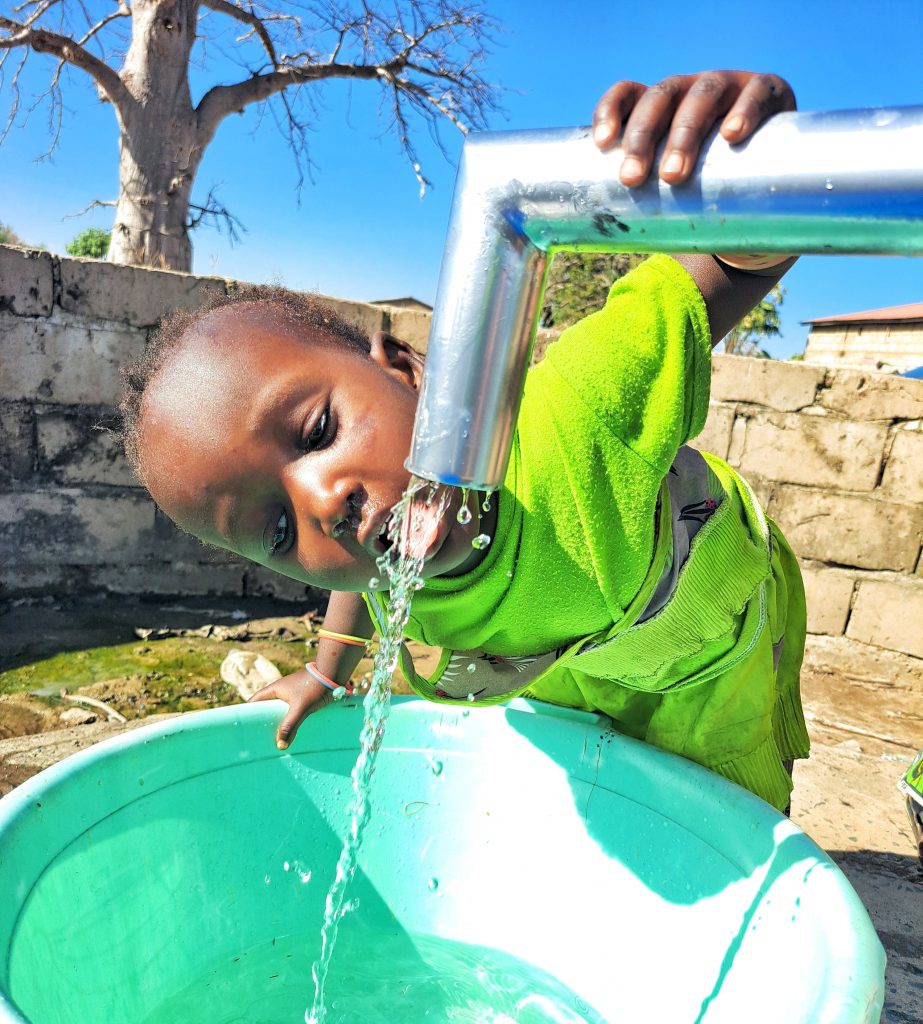
The Central River Region’s Lower Saloum is one of the poorest regions in The Gambia. Most people in the villages of Lower Saloum are engaged in subsistence agriculture – there is a recognized ‘hungry season’ when little food is available, but agricultural labor is most intense. There are serious environmental and ecological vulnerabilities, especially with increasing desertification. Lower Saloum is home to Kaur, one of Lower Saloum’s market towns, once had a groundnut processing plant, with associated export trade via the River Gambia, but this ceased over a decade ago. Lower Saloum is home to mangroves, which are located at the interface of land and sea in tropical regions, and offer a considerable array of ecosystem goods and services. Mangrove ecosystems are highly effective carbon sinks, sequestering vast amounts of carbon within the soil, leaves, branches, roots, etc.
Mrs. Aida Saine, head of the cultural women group called the “guelwel Balanghar’’ also gave thanks for the district water projects, saying this will give girls more time for their educations as the hours spent on searching for water would be utilized at school and study. Lower Saloum is a well-known district for its traditional and culture especially for the Wollof, Fana Fana tribesmen. Other community leaders of the beneficiary villages expressed their thanks and gratitude for the clean water projects. They emphasized the importance of these water projects, saying it will promote greater understanding and good will among the various tribes within the community. The traditional Chief of the district Ali J. Touray, along with other cultural leaders all emphasized the importance of this project, saying the power of clean drinking water unifies tribes and clans. This project will solidify brotherliness and more understanding among ourselves, they said. They also urged village water committee members to wholeheartedly strive to take good care of the water sources. Thanks to the donors for making this project a success.
The first phase of this project has been successfully completed thanks to Water Charity and its local partner Working Water The Gambia (WWG). This is part of a series of projects launched under the Water for Everyone Initiative. The project mission was to improve water access and sanitation conditions across 8 villages in Lower Saloum District by rehabilitating handpumps, installing new ones where necessary, and providing hand washing stations to improve sanitation and hygiene in the communities of Balanghar Njoben Village, Geinge Wollof Village, Kerr Kossa Village, Kerr Sam Boye Village, Manjakharr Village, Nawell Village, Njoben Samba Narr Village and Ngike Village. Thanks to the collaborative support of the villagers in all these villages, the project was completed successfully. This project provides access to clean water and sanitation to over 7,500 people.
Balanghar Njoben Village
ACTIVITIES
The project saw the successful dewatering, re-digging of wells, and installation of new German Mark 2 cylinders and conversion heads, stainless steel pipes, rod couplings, check nuts, pedestals, axle and bearings. Concrete water troughs were built, and new culverts for wells and concrete slabs were. Handwashing stations were installed in all project intervention communities supplied with detergents. In partnership with The Gambia’s Department of Water Resources, quality testing, and treatment were also conducted at the end of each community project. In each community, learning sessions were held on effective handwashing techniques and simple water management strategies. Communities also participated in manual work like digging and collecting sand and gravel. They also hosted workers, which assured that all materials were secured.
Geinge Wollof Village
OBJECTIVES OF THE PROJECT
The primary objective of this project is to provide clean drinking water and better sanitation for the people of the selected 8 villages in the Lower Saloum District as for the first phase of the project. This has been successfully achieved at the completion of the project.
- Lower Saloum region has long suffered from the lack of clean drinking water. The region has been hit hard with overgrazing and poor farming techniques that made a lot of farmlands inarable as well as frequent bush fires. One of the objectives of the project is to ease the pressure of the lack of clean drinking water in communities, as well as provide sanitation.
- One of the objectives of this project is to provide clean drinking water for marginalized vulnerable communities like the Fana Fana tribesmen and some of the Fulani herdsmen within the district. Lower Saloum has a lot of isolated villages that feel abandoned and forgotten. This project has made them feel heard, socially included, and a part of humanity.
- The project also empowers women and girls. We all know the burden women and girls bear in water collection. Lower Saloum is far behind in the illiteracy rate, especially within the Fana Fana tribe. They are well known for engaging in early marriage. This clean water project will empower girls’ participation in school and discourage families from the early marriage of girls. The time spent on water collection is far shorter now for school-going girls. This is a boost for girls’ participation in the school curriculum.
- Another important objective of this project is to inculcate the habit of hand washing in communities. At each of the rehabilitated water sources in each community, a hand washing station is provided with detergents and also a learning session on the techniques of effective hand washing. Members of the community gather in the village square for the learning sessions. This is a tool to combat the spread of germs and other communicable diseases that could spread within communities especially after using the toilets. It also aids nursing mothers as well as children to understand the importance of hygiene and sanitation. Participation in the learning sessions was high. Community engagement was immense and enthusiastic.
- Several communities in Lower Saloum District still practice open defecation. It is a matter of concern as stakeholders works towards zero open defecation in the country in line with SDG 6.2 Sanitation and Hygiene. Another key objective of these water projects is to facilitate round-the-clock household access to water. This will steer people away from going outside to defecate. The availability of water in the households is a catalyst towards the cessation of open defecation.
- Another objective of these projects is to encourage women’s engagement in household-level horticulture gardening. Every rehabilitated water source includes a concrete watering trough. The water trough traps wastewater from the hand pump and can be used by nearby houses for small-scale household horticulture vegetable gardening. This avoids the wastage of water and allows households to grow vegetables and enables their livestock to drink. This helps provide the households with a balanced diet and thereby alleviates the extreme poverty communities face especially in the dry season.
- Key objective of this project is to cut down the high rate of water-related illnesses in the recipient communities. Children often face the brunt when it comes to waterborne diseases. Certain households are drained of all resources when a family is struck with waterborne diseases. These water projects will lessen the burden on communities and money that would otherwise be spent on doctors or medicine can be used for food or for girls’ education instead. This has contributed to the poverty rate of Lower Saloum within the Central River Region.
- Setting up and training village water management committees was another objective of the project. We set up and trained water management committees in all the project communities. They help in the day-to-day management and maintenance of the water source. This will help make the project sustainable. As a best practice, we ensure the committee is gender-balanced and that women have a say in the maintenance and management of the water source. Traditional Wollof women communicators are common within Lower Saloum District known as ‘’Guewel’’. They disseminate information through the local grassroots level. This is a powerful tool for us to achieve our aims and the successful conclusion of this project. They are also involved in the sensitization of communities for better water management.
Kerr Kossa Village
BENEFICIARY TESTIMONIAL
The excitement and happiness are overwhelming in all the communities. Heads of villages and cultural leaders of the respective 8 villages all expressed their sincere thanks for the project and happiness, highlighting the positive impact that these clean water projects have in their lives. Seedy Mbaye, the local councilor of the district, heaped praises on and thanks to Water Charity. He also mentioned the social and economic importance of the water projects, as well as the tremendous importance of clean drinking water for the communities, especially in relation to the provision of education and increased well-being. He also mentioned the importance and timeliness of the project. Some communities were severely threatened with abandonment due to the lack of water.
Ousman Faye Alkalo of Sancha Pallen Village cried over the challenges faced by people in his community to access clean drinking water. This he added is now a thing of the past, thanks to the invention of Water Charity. We can now breathe nicely and have a peace of mind, he said. Anha Jallow, a community leader described water as one of the most important necessities of life. Without water, he added health and sanitation cannot be sustained. In a community, without water, there’s no cleanliness we want to have water and when you have water you can drink and do washing as well as fetch water and take Bath so water is part of cleanliness. We are very happy with this water project. We say a big thanks to Water Charity.
Pullo Njie a beneficiary in Nawell Village, described the intervention as crucial saying the importance of a reliable source of water cannot be over-emphasized. When we don’t have clean drinking water our livestock cannot drink water as well. With this water project, we can drink from there and our livestock will also be drinking from there and we will flourish thanks to Water Charity. Alieu Sallah returned gratitude to Water Charity for coming to their aid.
Kerr Sam Boye Village
Manjakharr Village
Nawell Village
Ngike Village
Njoben Samba Narr Village
To see project-related videos, Click Here.
This project has been completed. To read about the beginning of the project, CLICK HERE.

